32 things to know about English Springer Spaniels
Loveable, energetic and heaps of fun, the English Springer Spaniel is a canine dynamo with an adventurous personality.
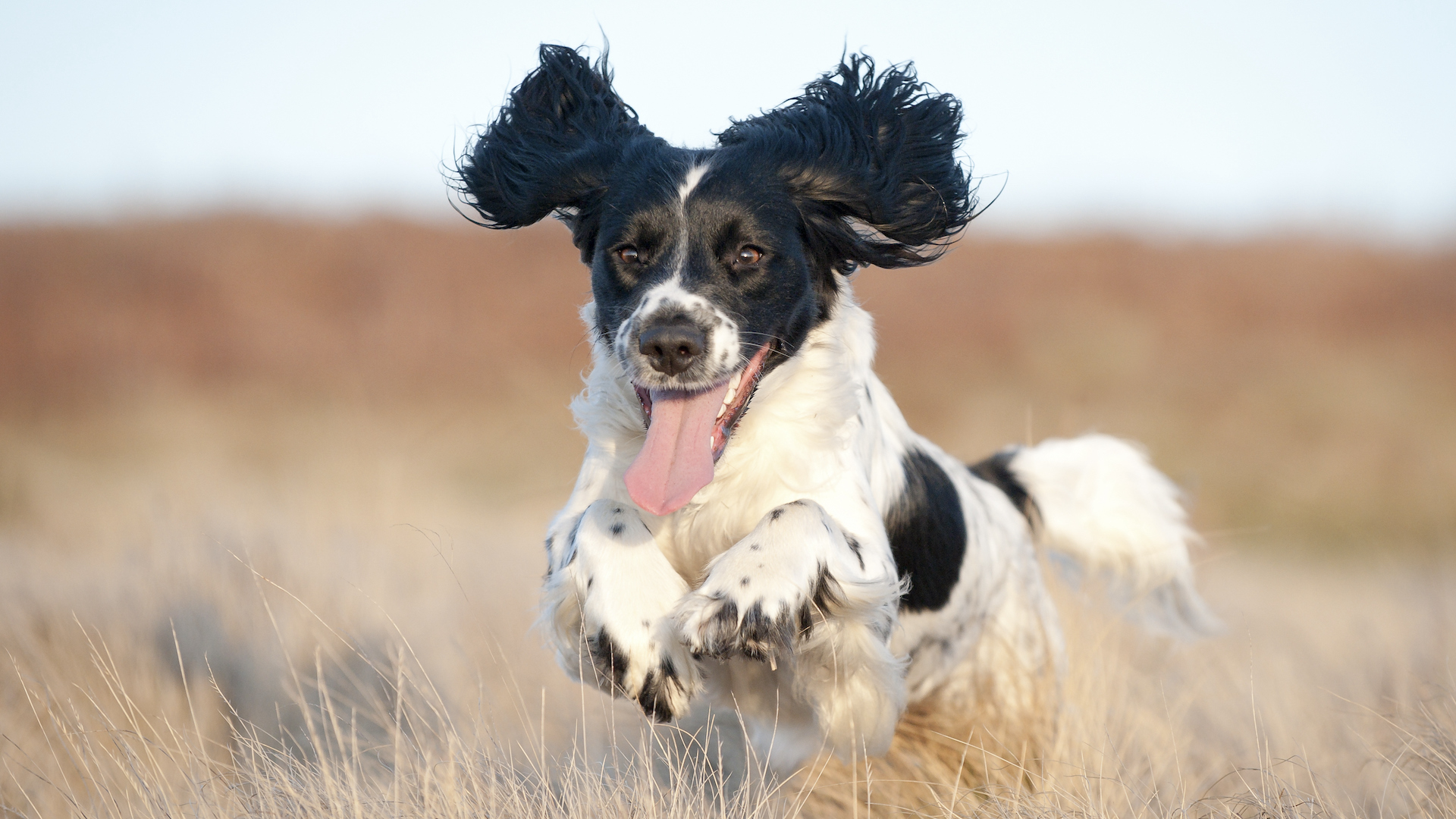
Anyone who has ever had the joy of owning an English Springer Spaniel will know how much delight this ebullient breed brings to a household. With their delightful patchwork coat and beguiling eyes, this is a dog with both looks and personality, which longs to please.
With endless energy levels, it is important to keep your home stocked with the best dog toys to burn off some of that energy. Springers belong to the gundog category, alongside several other popular breeds such as Labrador and golden retriever, but they make just as good a pet as a working dog. But that work ethic still runs through their veins. If they aren’t required to spring and retrieve game, they’ll turn their paw wholeheartedly to all sorts of other tasks, be it chasing a ball, agility, canicross, playing with the kids, swimming the entire width of a lake, or accompanying you on a walk (as many of those as possible, if you please).
It’s hard to find a con with this appealing breed – though their energy levels may be too elevated for some owners. Let’s find out all you need to know about English Springer Spaniels.
Facts about English Springer Spaniels
1. Springer by name and nature
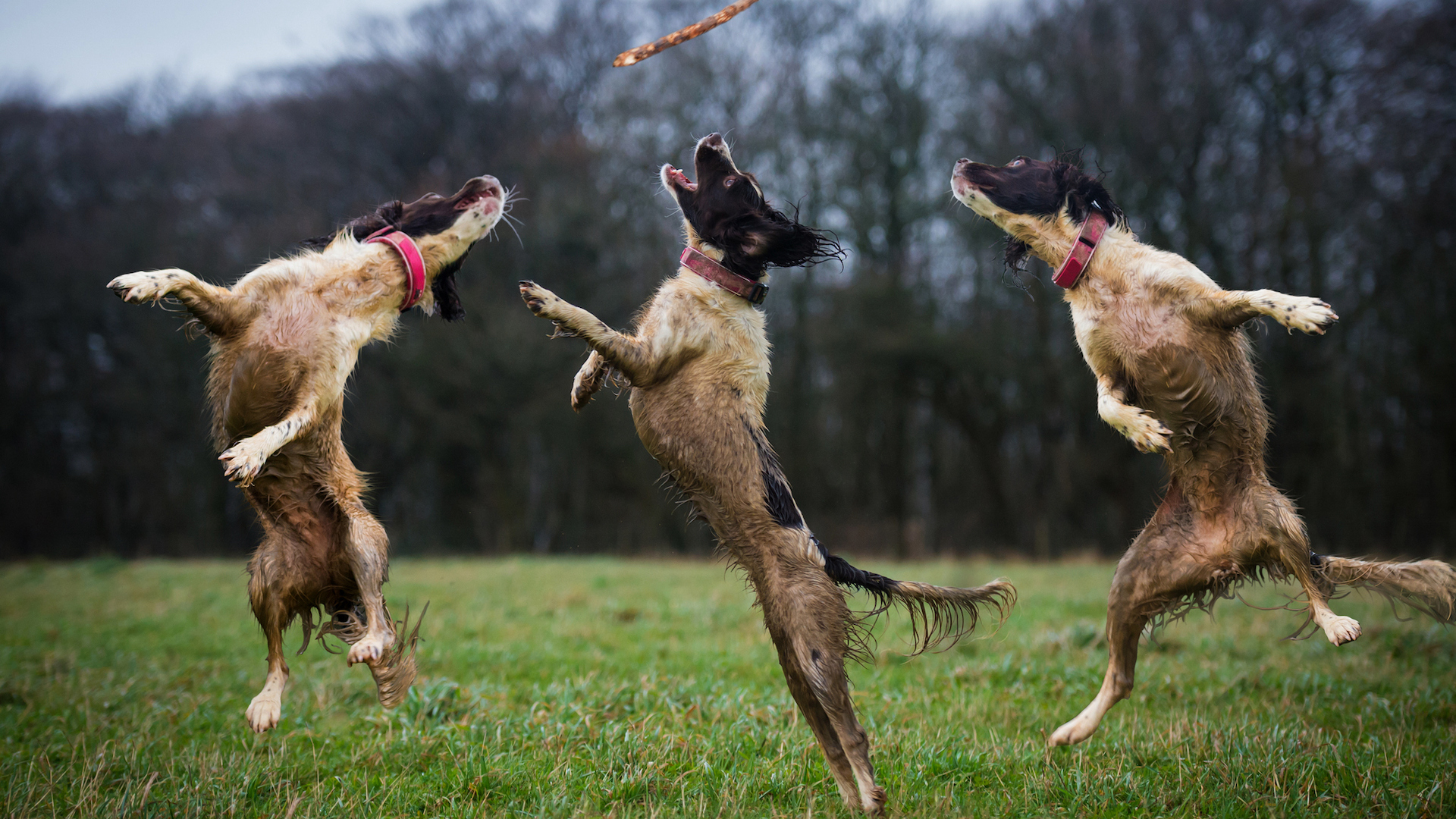
The name “springer” refers to this spaniel’s modus operandi in the hunting field. Although the vision of this breed springing through long grass might stick in the mind, in fact the name comes from them “springing” or flushing out game from undergrowth. These pups sure can jump!
2. Gundog group
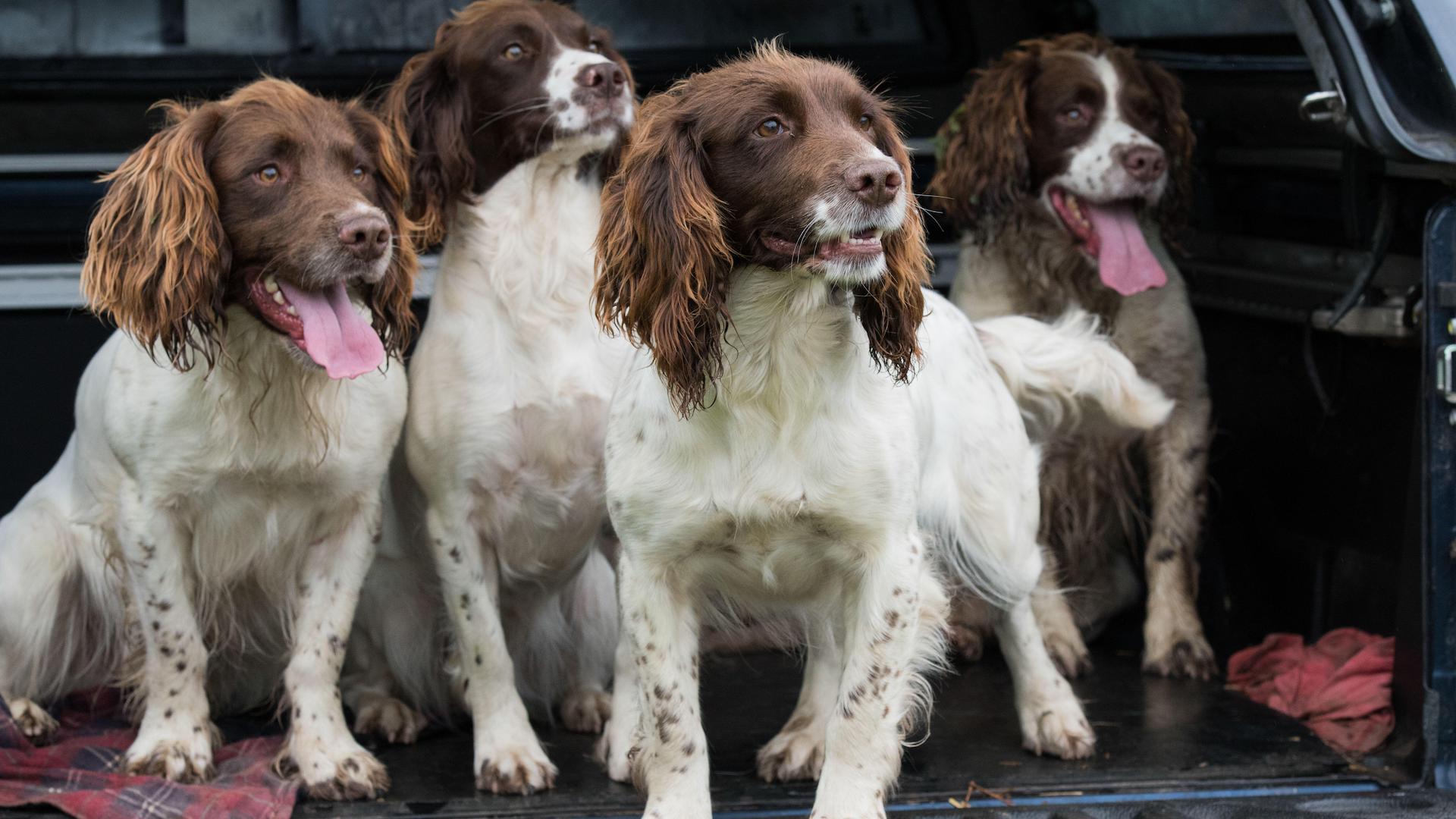
The English springer belongs to the gundog group, which means that it was originally developed as a hunting companion to chase game. While most “gundogs” nowadays are kept as family pets, the traits that made them great in the field – namely trainability, working alongside humans, and intelligence – also make them wonderful in the home.
3. People-pleasers
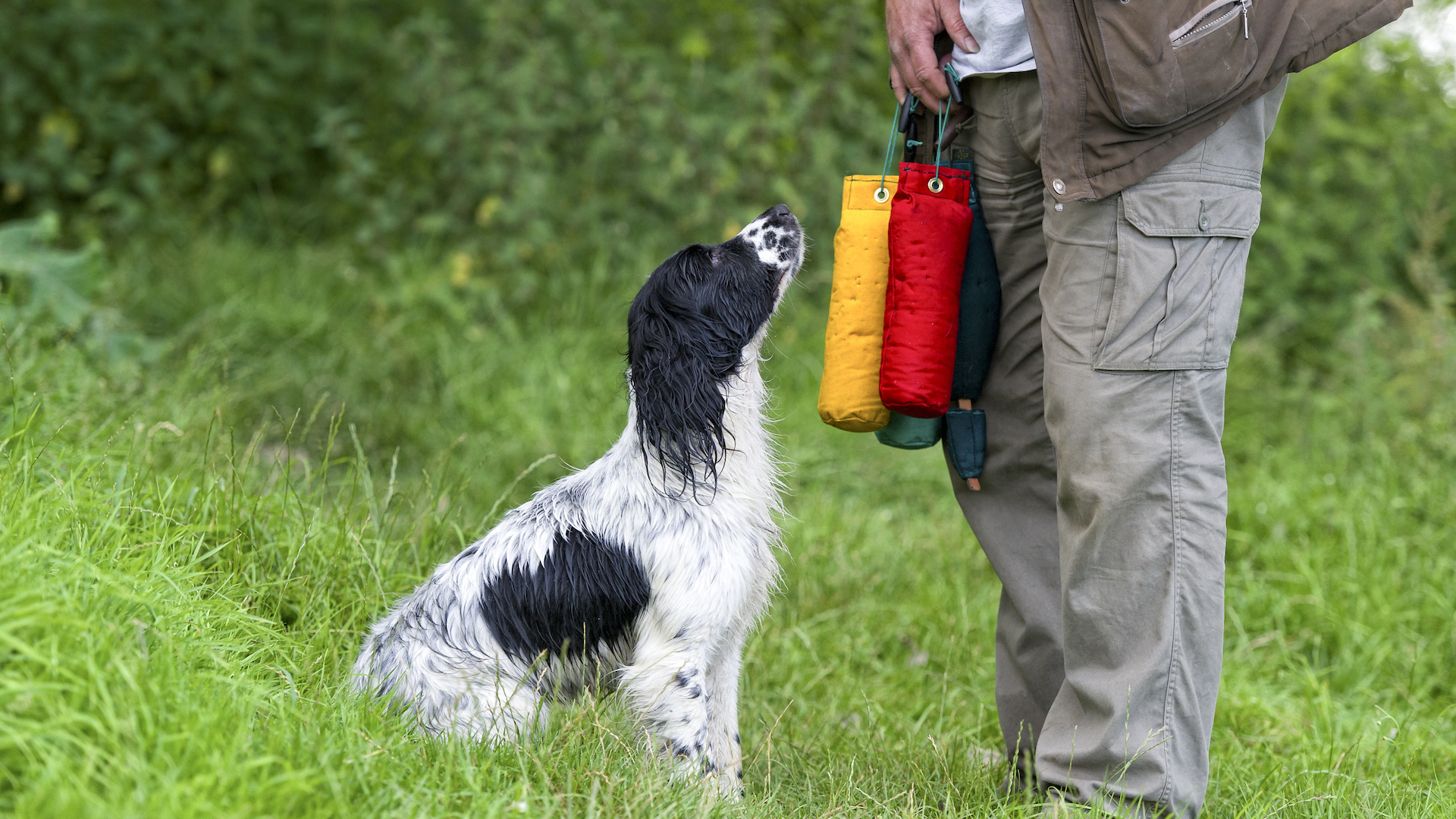
Bred to work alongside humans, the typical springer is highly trainable, eager to please, and one of the smartest dog breeds. Their kind, trusting expression is a total giveaway – they just want you to be their friend for any kind of adventure.
4. High energy
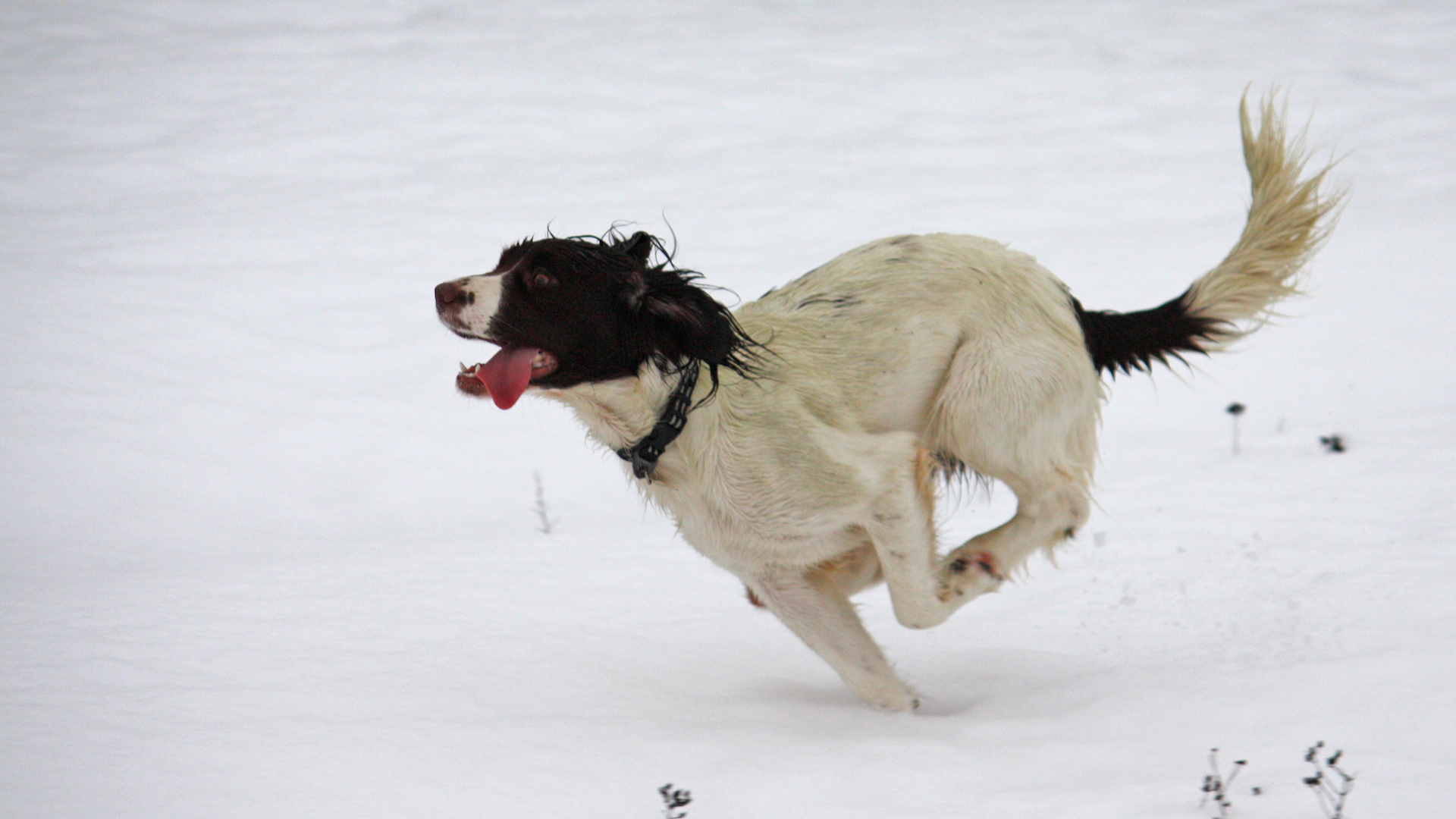
This is a dog that can run, and run, and run. They’ll never say no to any physical activity, whether it’s chasing a ball, going for their 10th walk of the day, or hiking up mountains. They are also one of the dog breeds that are made for swimming, so consider taking this pup along on your next trip to the beach.
Get the best advice, tips and top tech for your beloved Pets
5. Floppy ears
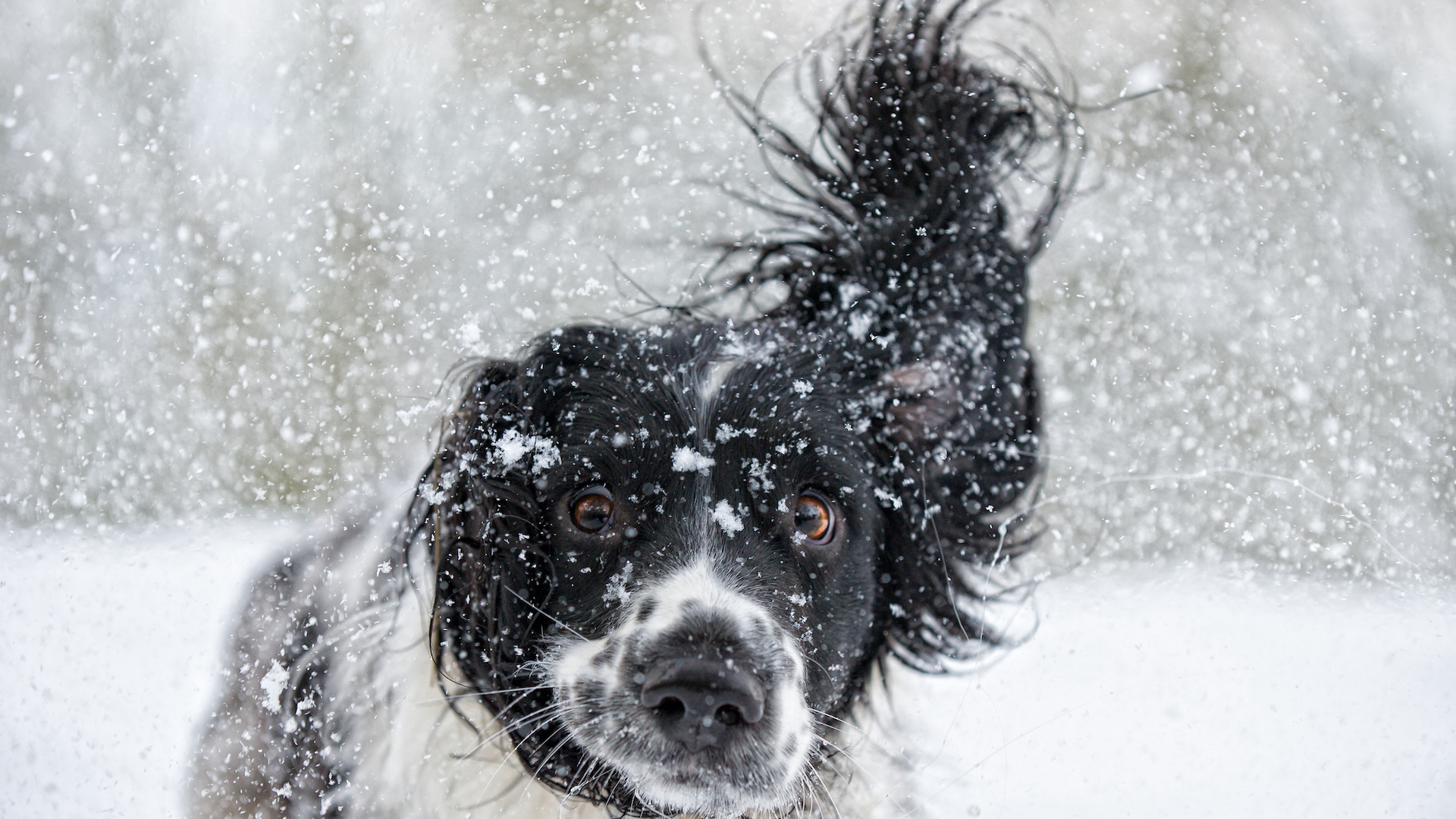
A springer spaniel’s floppy, flappy ears are one of his most endearing features. Their long, drooping shape helps to waft scent from the ground towards their nose, so they are pretty useful – even if they might look comical flying high as they gallop back to you on recall.
However, springer owners need to know how to clean a dog’s ear, as they are liable to collect dirt, water, and other debris while out on their daily escapades.
6. Family friends
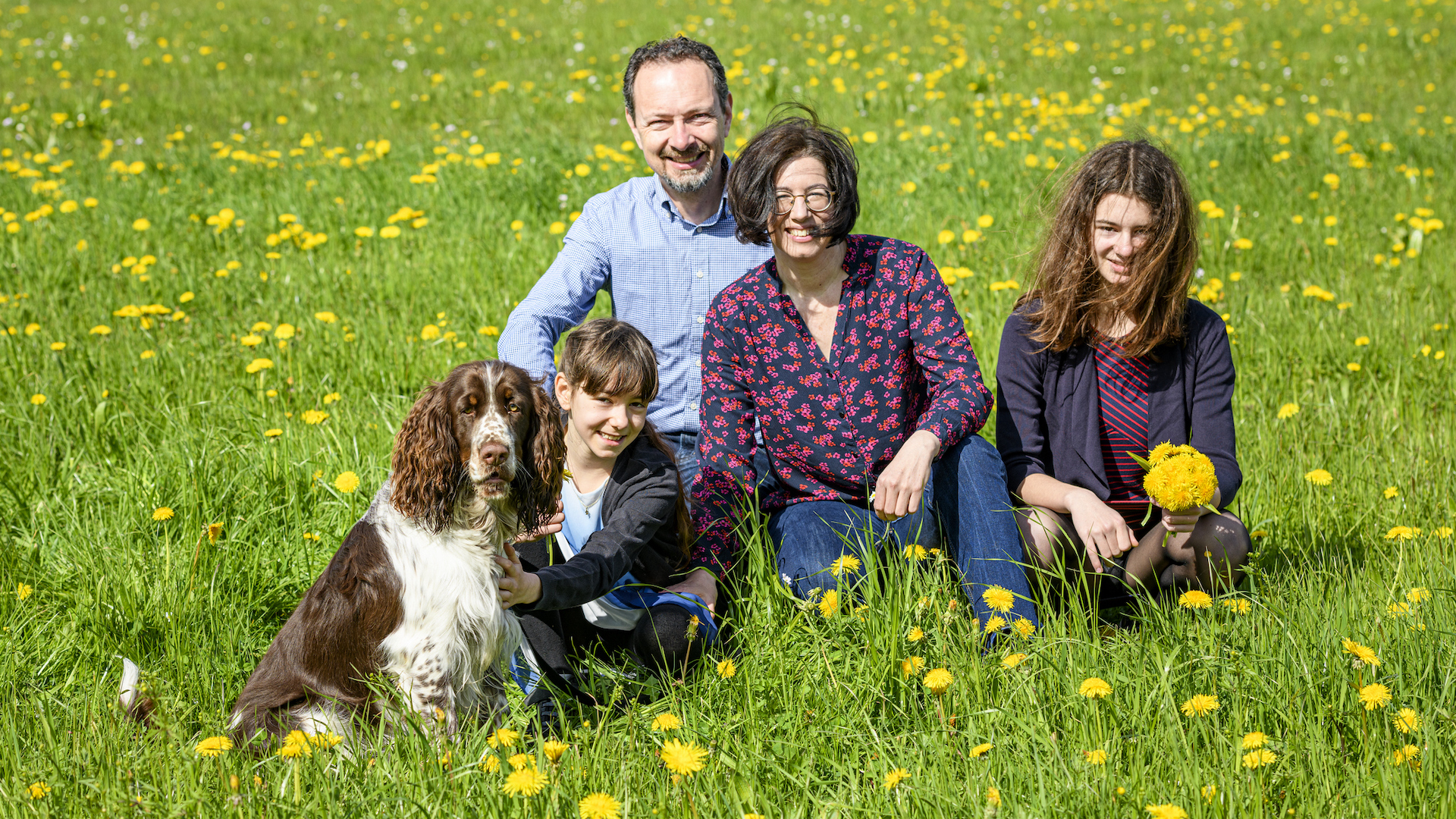
Springer spaniels are brilliant family dogs, being gentle, friendly and fun. They are typically a happy-go-lucky breed, being affectionate and always up for an adventure. They might be bouncy, but this fun-loving nature makes them ideal playmates.
7. Long legs
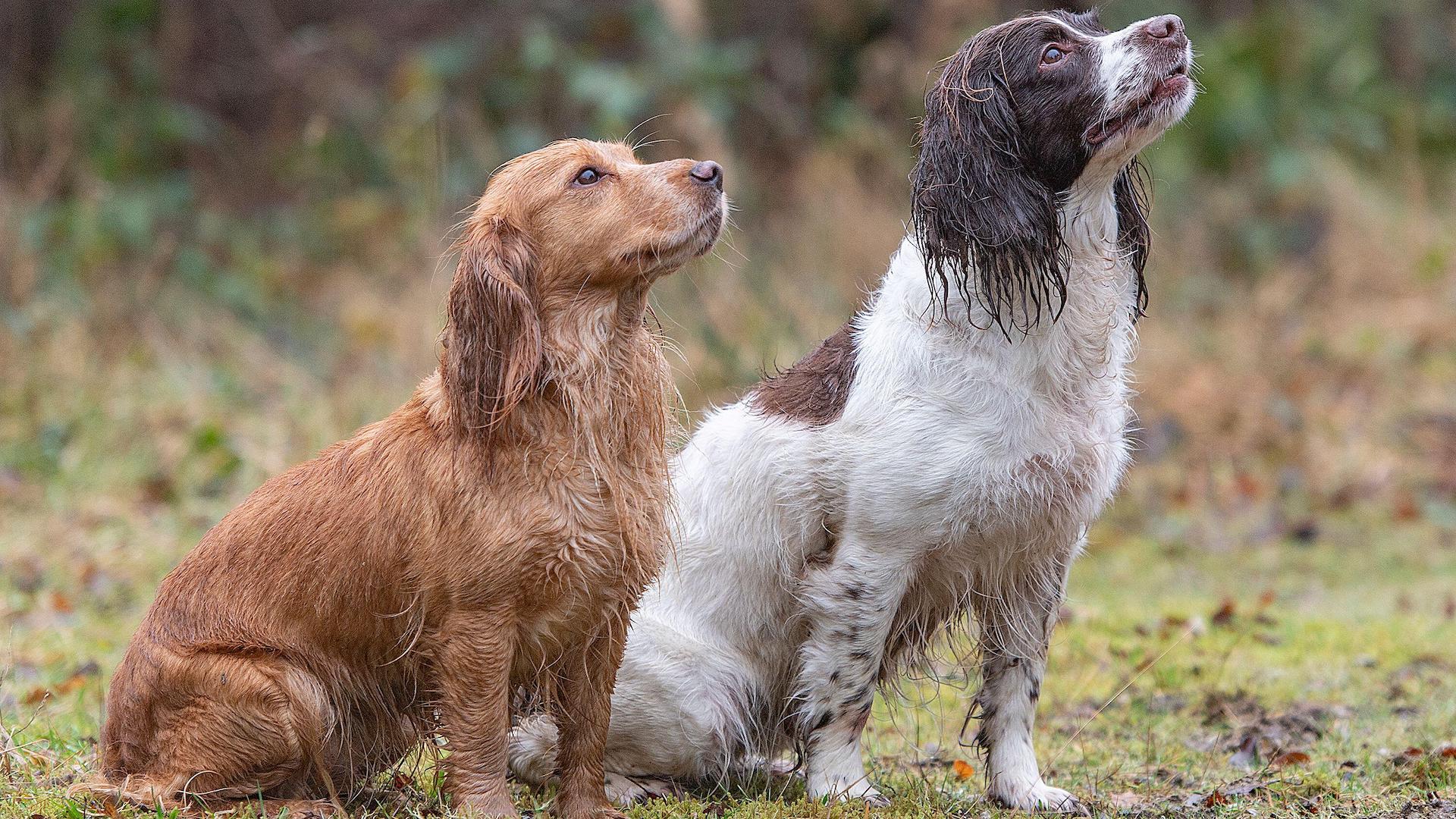
The English springer has the longest legs of all the land spaniels, giving him great speed and athleticism. The Clumber may be a larger spaniel overall due to its stocky build, but the springer is the racier model.
8. Color palette
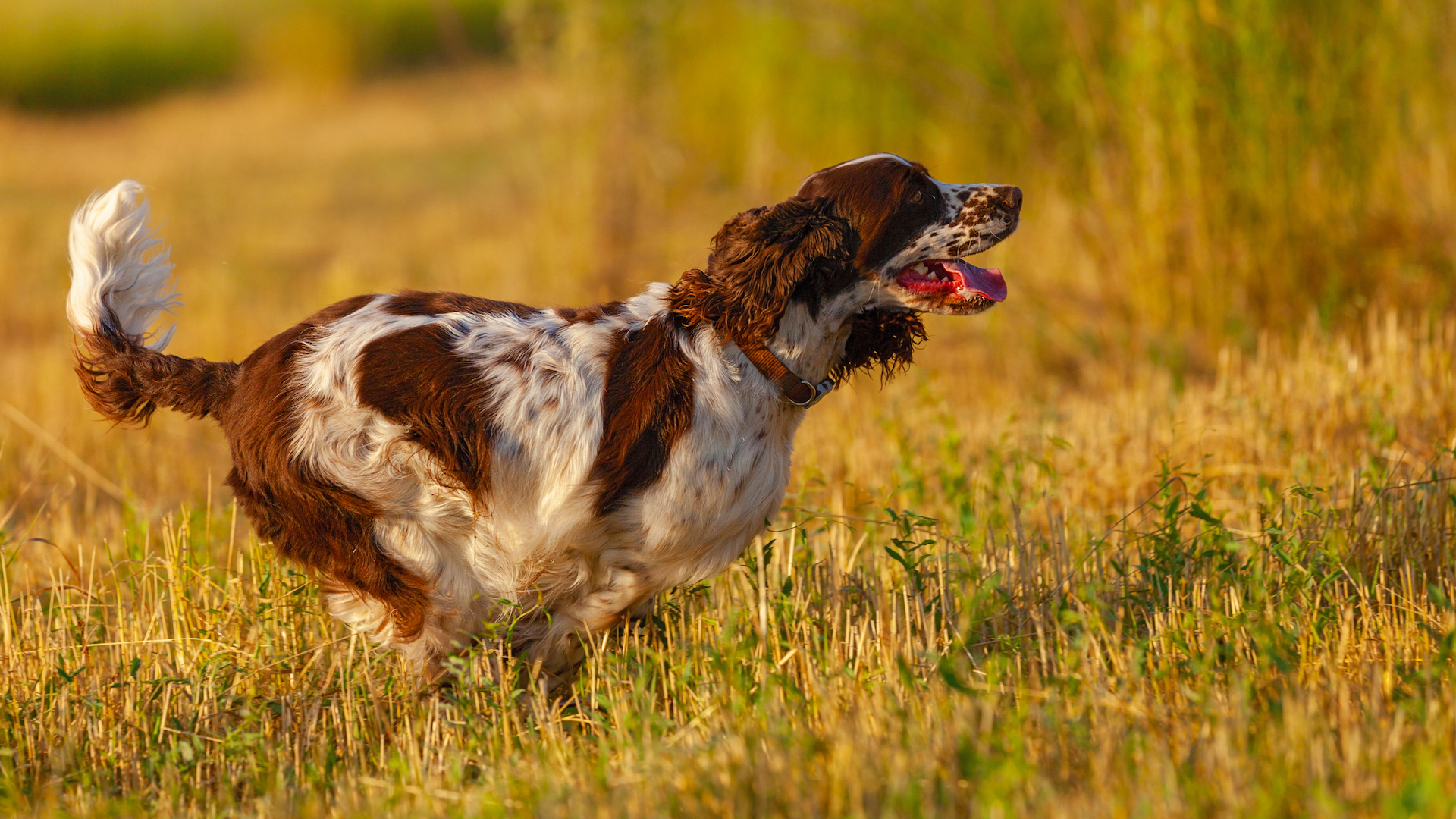
An English Springer Spaniel is a patchy dog, with variations of black, liver, and tan, including tricolor. Liver and white is the most common color combo.
9. Popular pooch
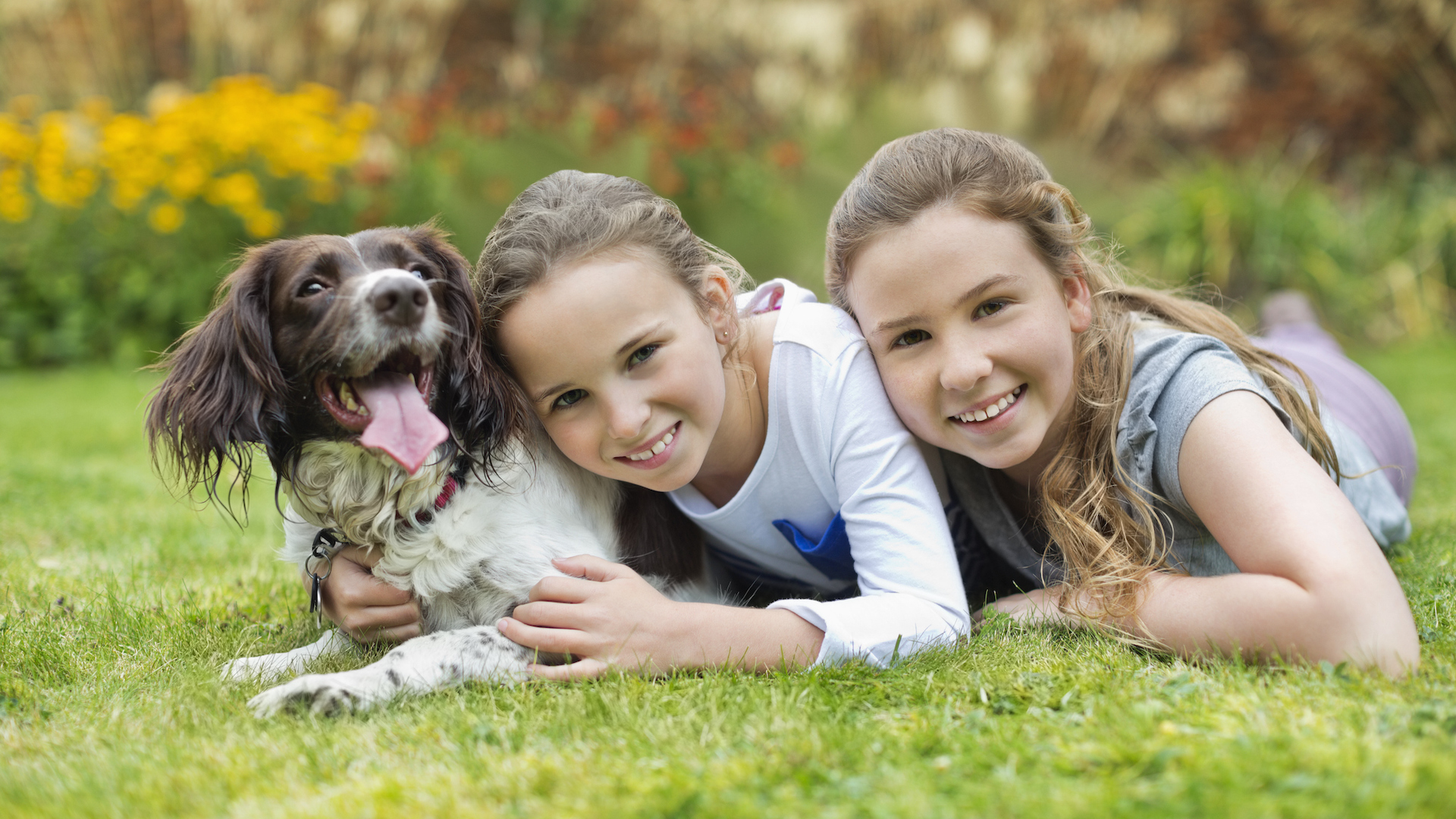
In England, the English Springer Spaniel’s official country of origin, the breed stands sixth in the rankings for the most popular dog. Even across the Atlantic in the US, it makes the top 30 and is the first of the land spaniels (the toy dog Cavalier King Charles spaniel is the only spaniel ahead).
10. Litter size
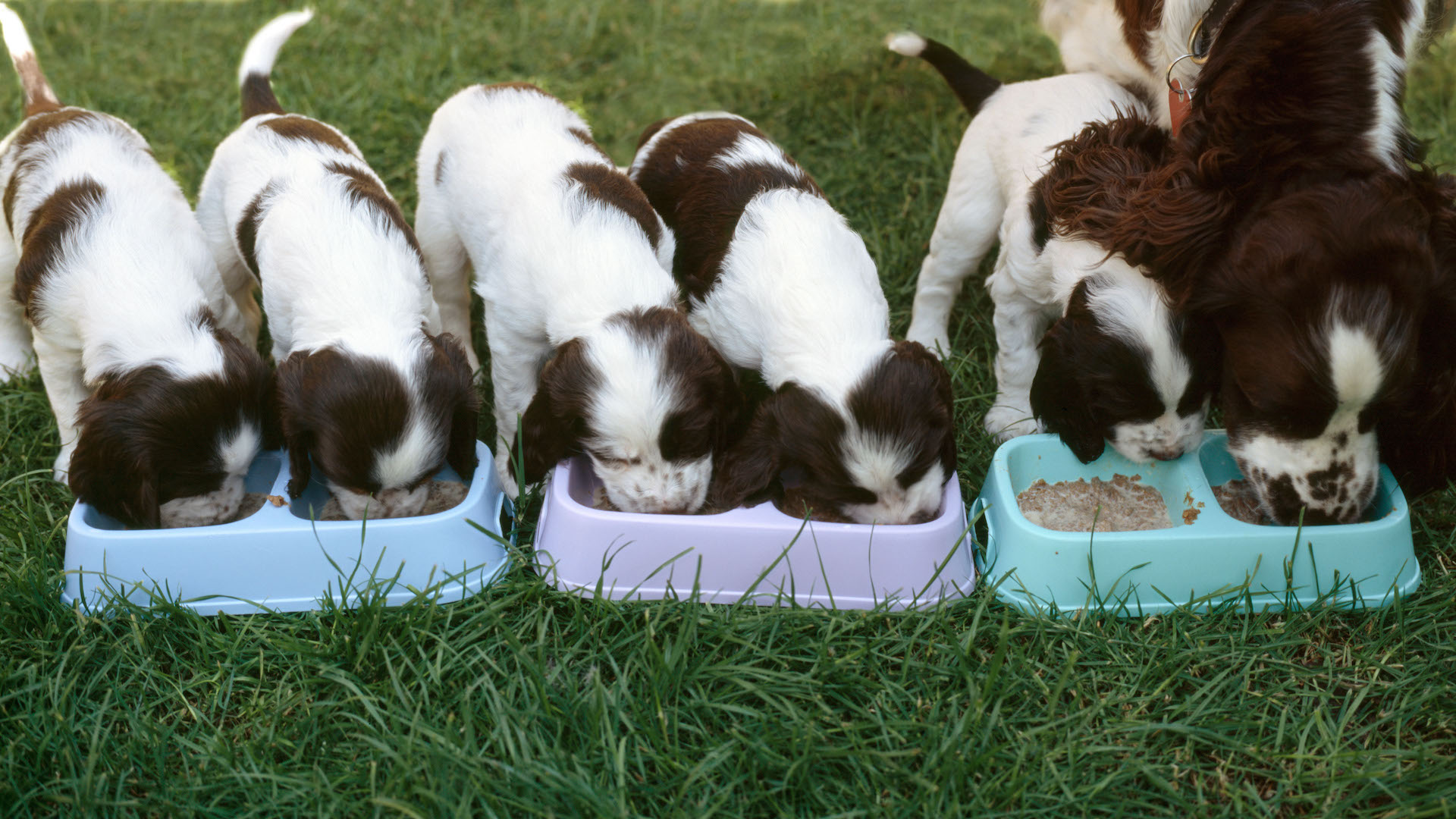
The average litter size for a springer spaniel is six puppies. However, it’s no surprise to hear of litters in double figures and one springer is recorded as having given birth to a whopping 15 live puppies!
11. Springer or cocker?
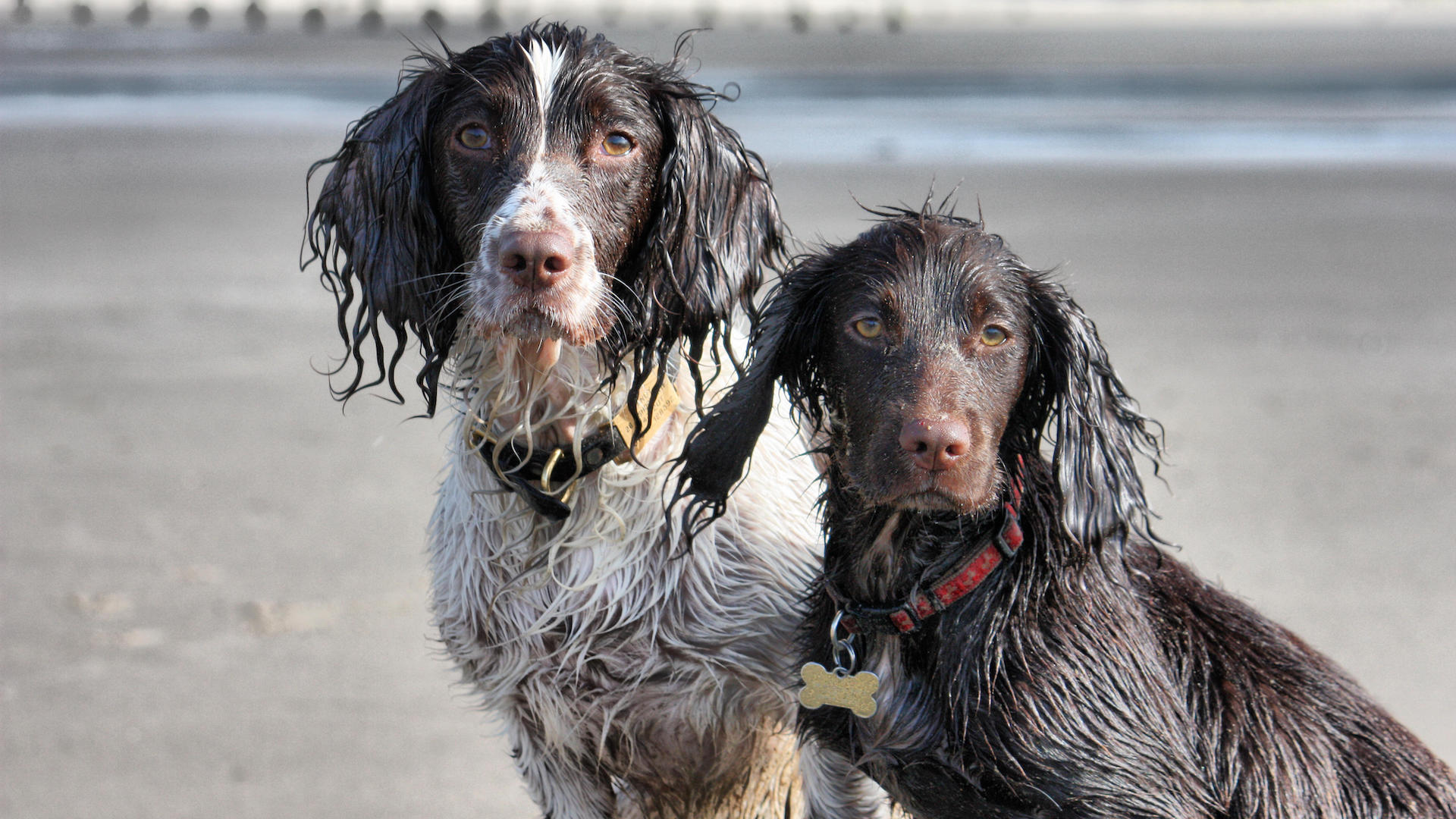
One thing to love about cocker spaniels is that they look a lot like mini springers and with good reason. They used to be considered the same breed and could both be born in one litter. The smaller dogs flushed out and retrieved woodcock, while the springer could “spring” bigger game. It was not until 1910 that two separate breeds were established, and even now a small springer will very closely resemble a liver and white cocker spaniel.
12. Two types of springer
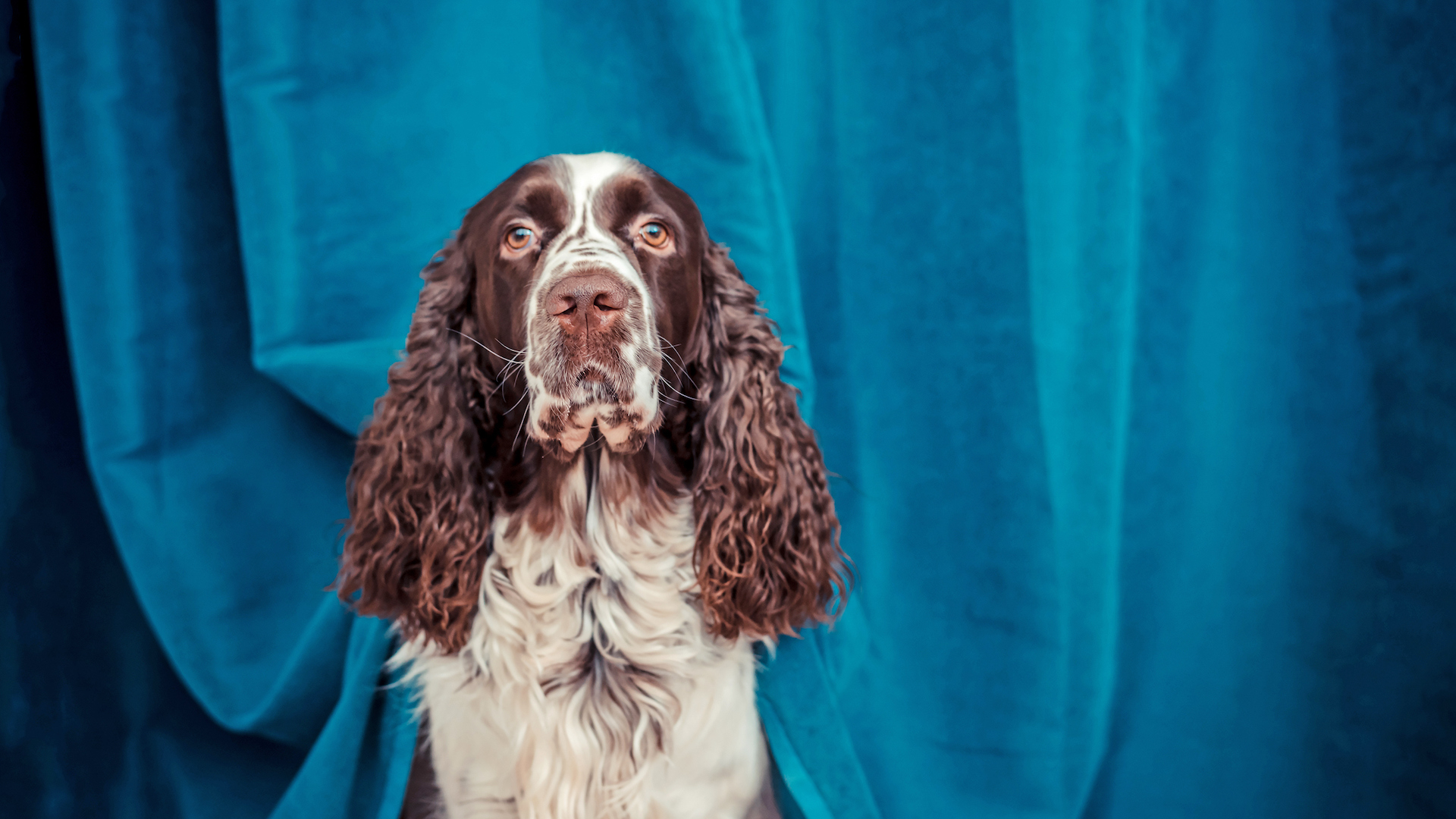
You would be forgiven for thinking there are two different breeds when looking at the show or working springer. The show version is much larger and heavier, compared to the wiry worker. Working springers have shorter, coarser coats and a generally tighter more athletic appearance, while the show dogs have longer fur, very droopy ears, dewlaps and flews.
While the show dog might excel in a beauty contest, the working version will trump it in the field with its superior stamina and nose.
13. Super sniffers
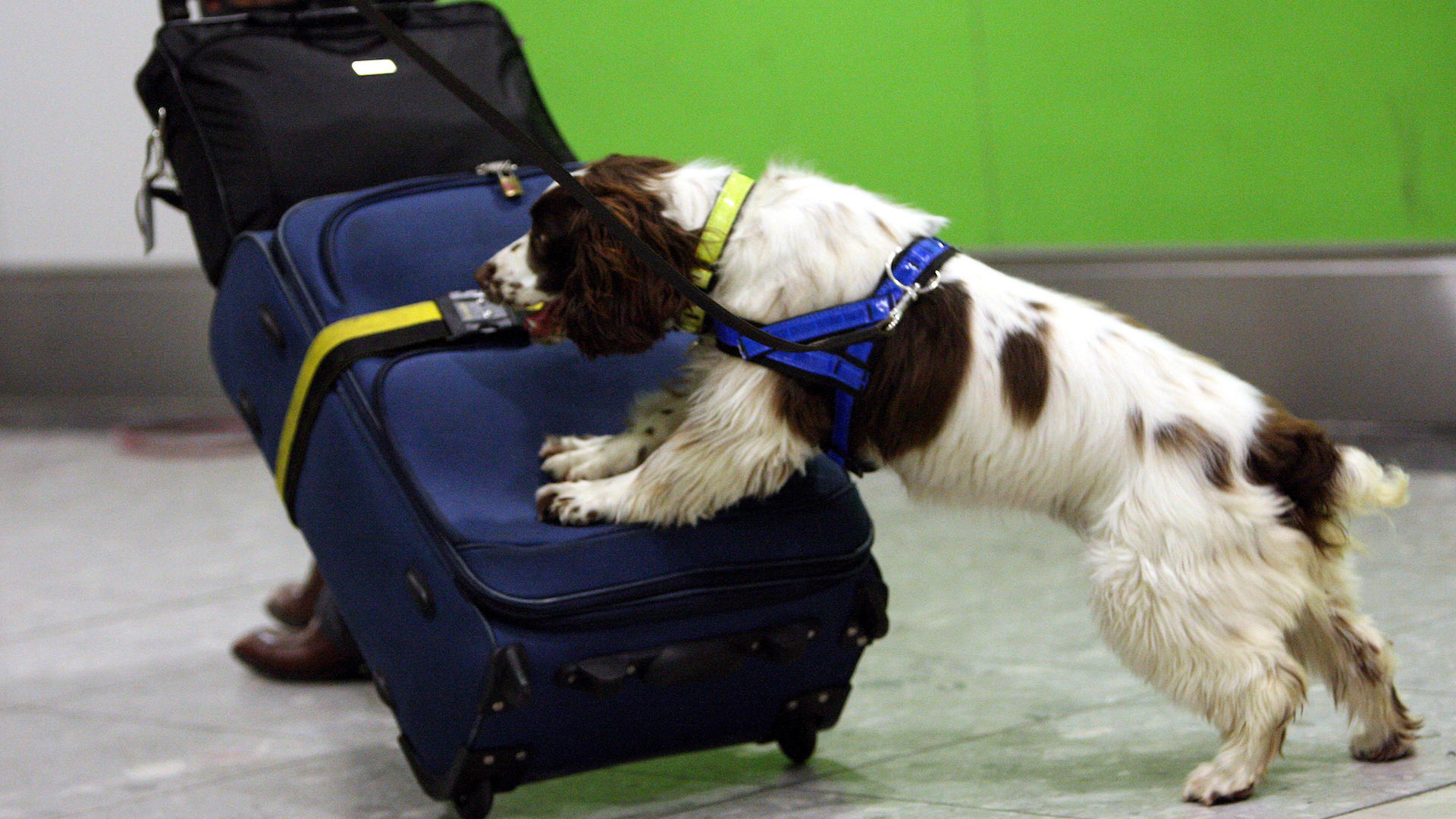
Springer spaniels are one of the best tracking dogs, and are highly trainable as expert sniffer dogs thanks to their superb nose. They are particularly recognised for their aptitude in the detection of explosives, illegal drugs and narcotics, and you’ll often see them working in airports.
An English springer by the name of Buster received the Dicken medal (animal equivalent of the Victoria Cross) for his efforts in searching for explosives in the Iraq War.
14. Springer swimmers
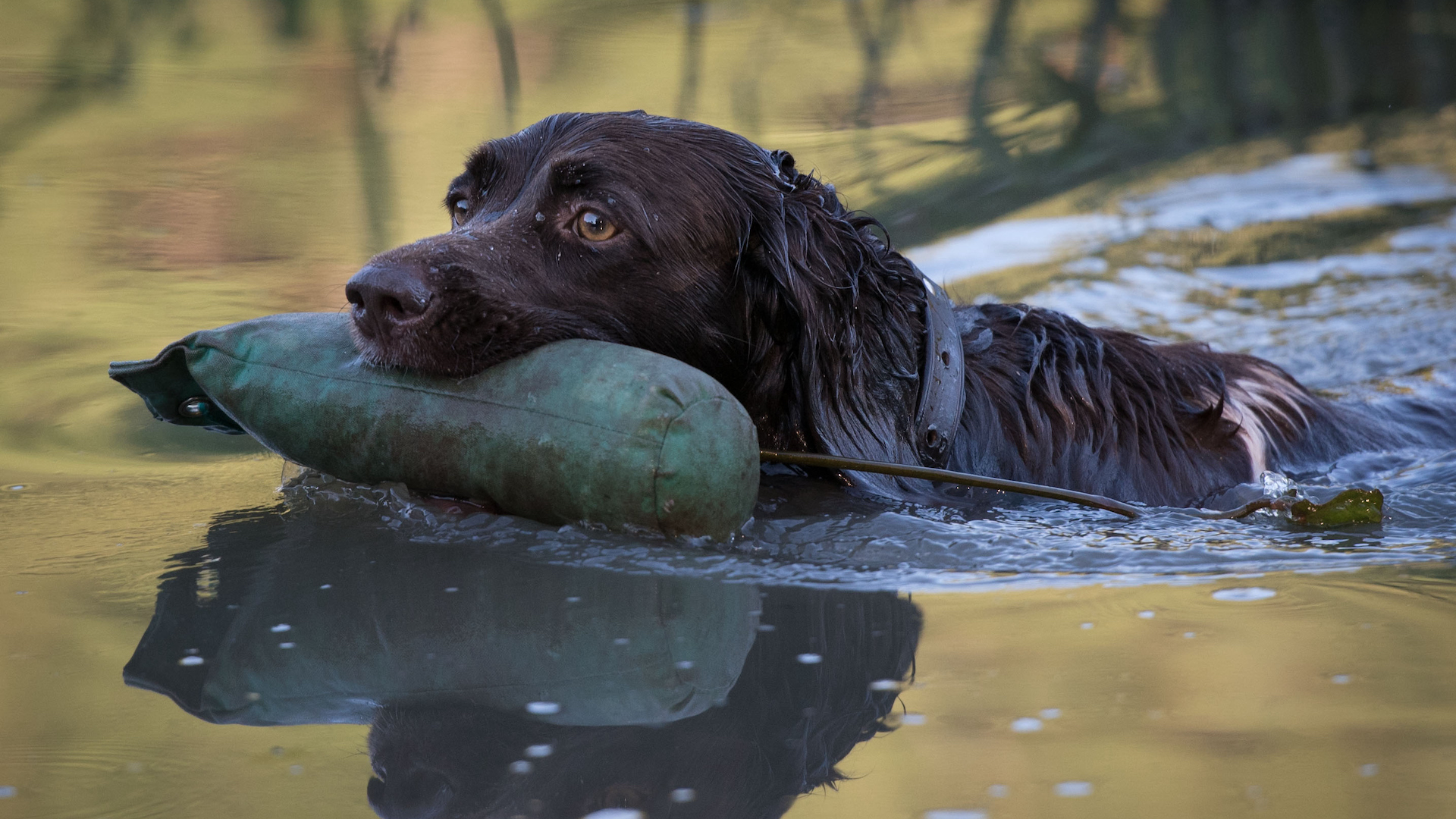
Springer spaniels tend to be great swimmers, with their webbed feet and water-resistant coats, and love nothing more than a game of fetch by the lakeside, diving joyfully into the water and paddling furiously after their ball. It’s in their genes, after all, being bred to retrieve fallen birds, which often ended up in the water.
15. Kings of quartering
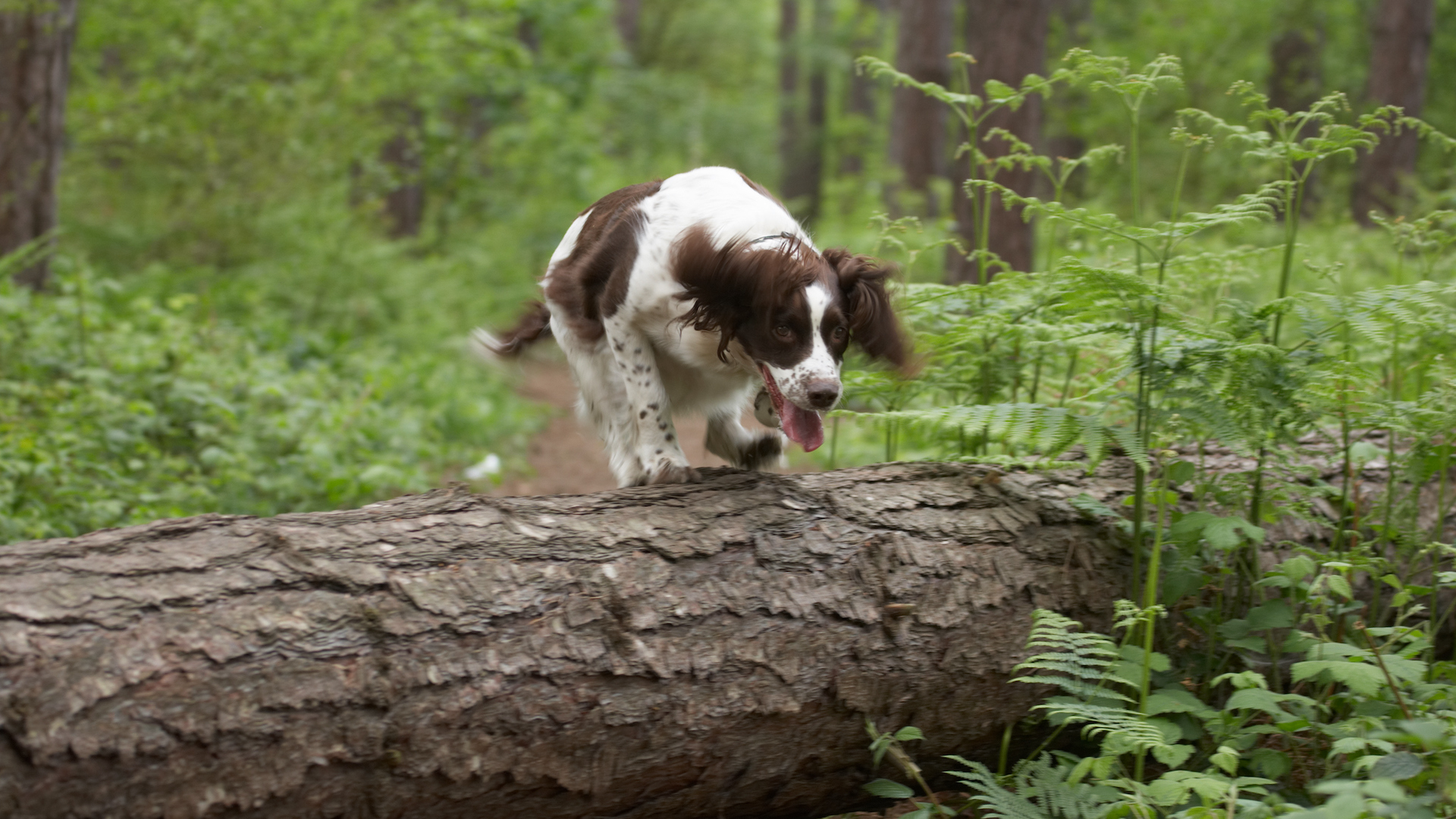
Quartering is a special spaniel move, where a working gundog works in a systematic zig-zag pattern to flush out game birds. Never mind the fact that most springers are not called upon to do any kind of hunting anymore, it’s often an innate instinct for them to cover the ground in this way. No direct lines from A to B for them, they’ll sniff out every square foot of the territory, which can lead to some interesting shapes on the GPS tracker! It’s a great way for them to burn off excess energy as they’ll cover far more ground than their handler.
16. One of a kind
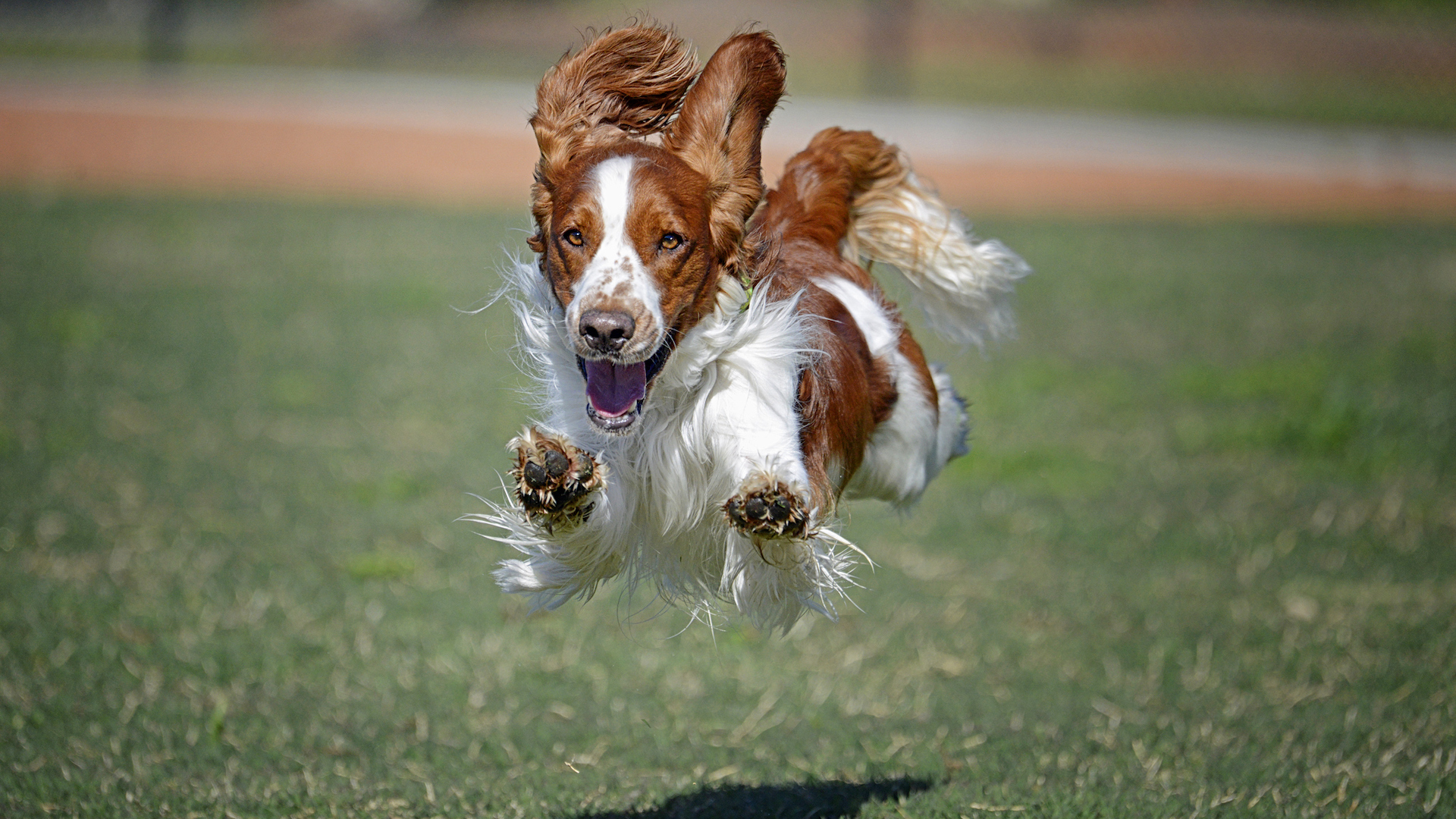
There are actually two types of springer spaniel, the English and the Welsh. While they have physical similarities, the Welsh is a good two inches shorter with an exclusively red-and-white coat, smaller ears and a domed rather than flat skull.
17. Peace and quiet

Springer spaniels are a naturally quiet breed that is not prone to nuisance barking – if they bark at all. They were not bred to guard or communicate with humans in this way, so they tend to be one of the quieter breeds vocally. (They make up for it with their bounciness).
18. Not needy
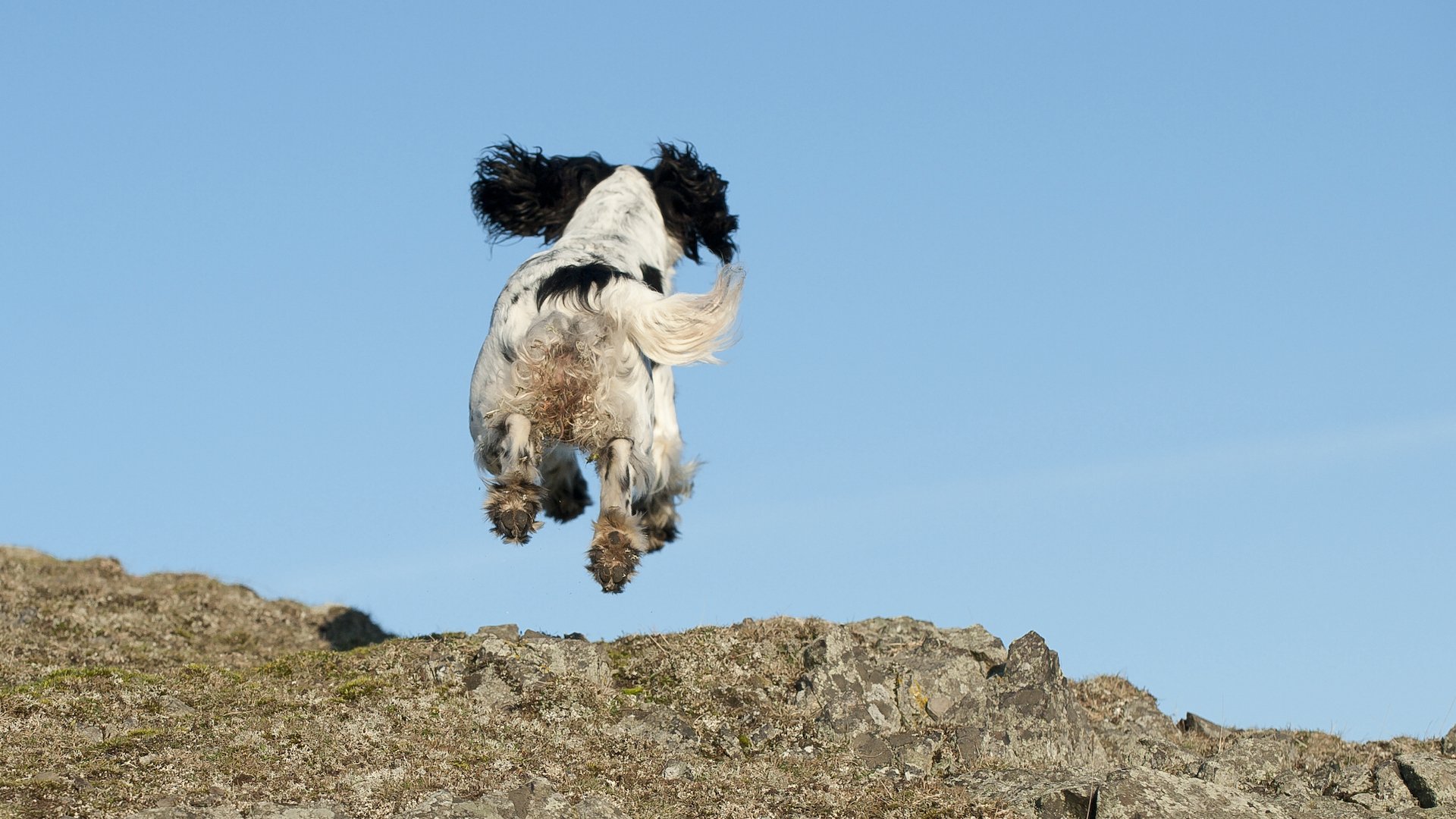
While springer spaniels do form strong bonds with their handlers and families, they are often unfazed by being taken to new places, kennels or being looked after by new people. Many spaniel owners report their dog as being happy to go off with a complete stranger – so long as they have a ball and an appetite for adventure.
19. Ballboys
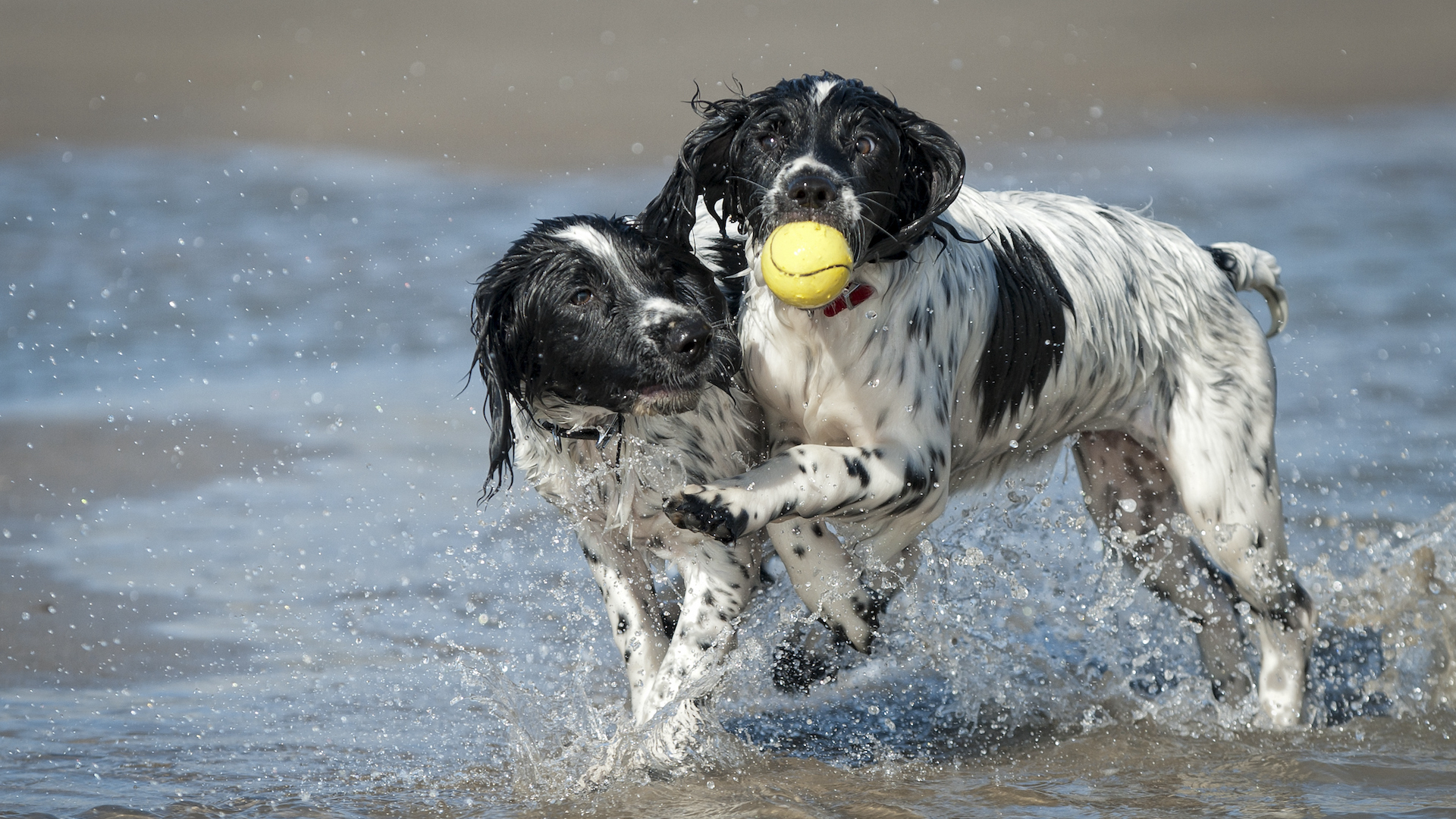
It’s rare to meet a springer spaniel who does not have a craze for chasing a ball. Serious gundog trainers usually steer clear of balls, instead training the spaniel for the task in hand with a dummy game. However, your average pet springer adores a game of fetch and will never, ever get bored of retrieving his ball.
20. Chasing shadows
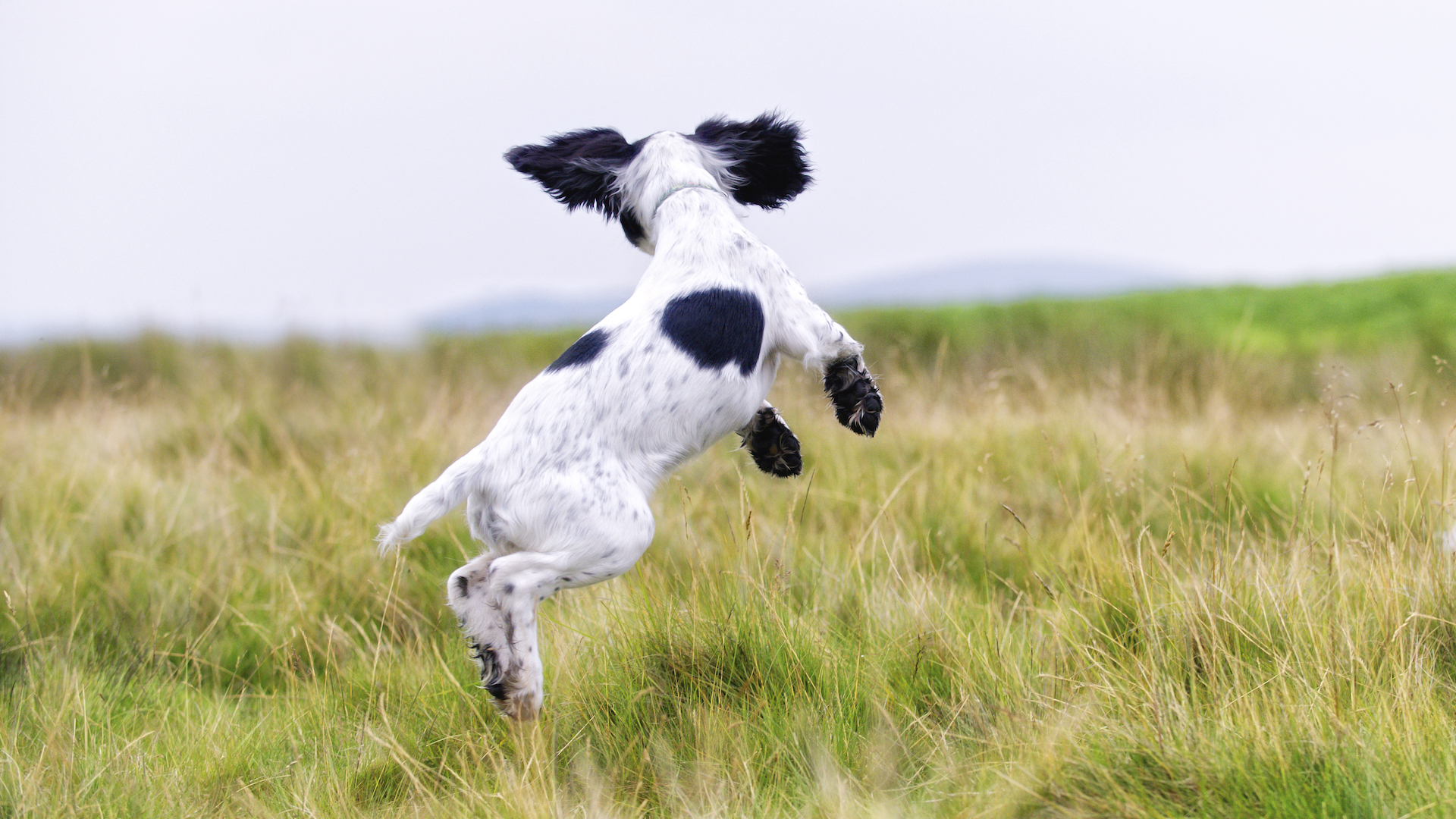
Springer spaniels, with their ultra-high energy levels, can develop an obsession with chasing light and shadows, “pouncing” on them. This is akin to an obsessive compulsive disorder in dogs, and should be nipped in the bud before it takes hold. Plenty of mental and physical stimulation is key to preventing them from seeking their own entertainment as springers have a low boredom threshold.
21. Long-term puppies
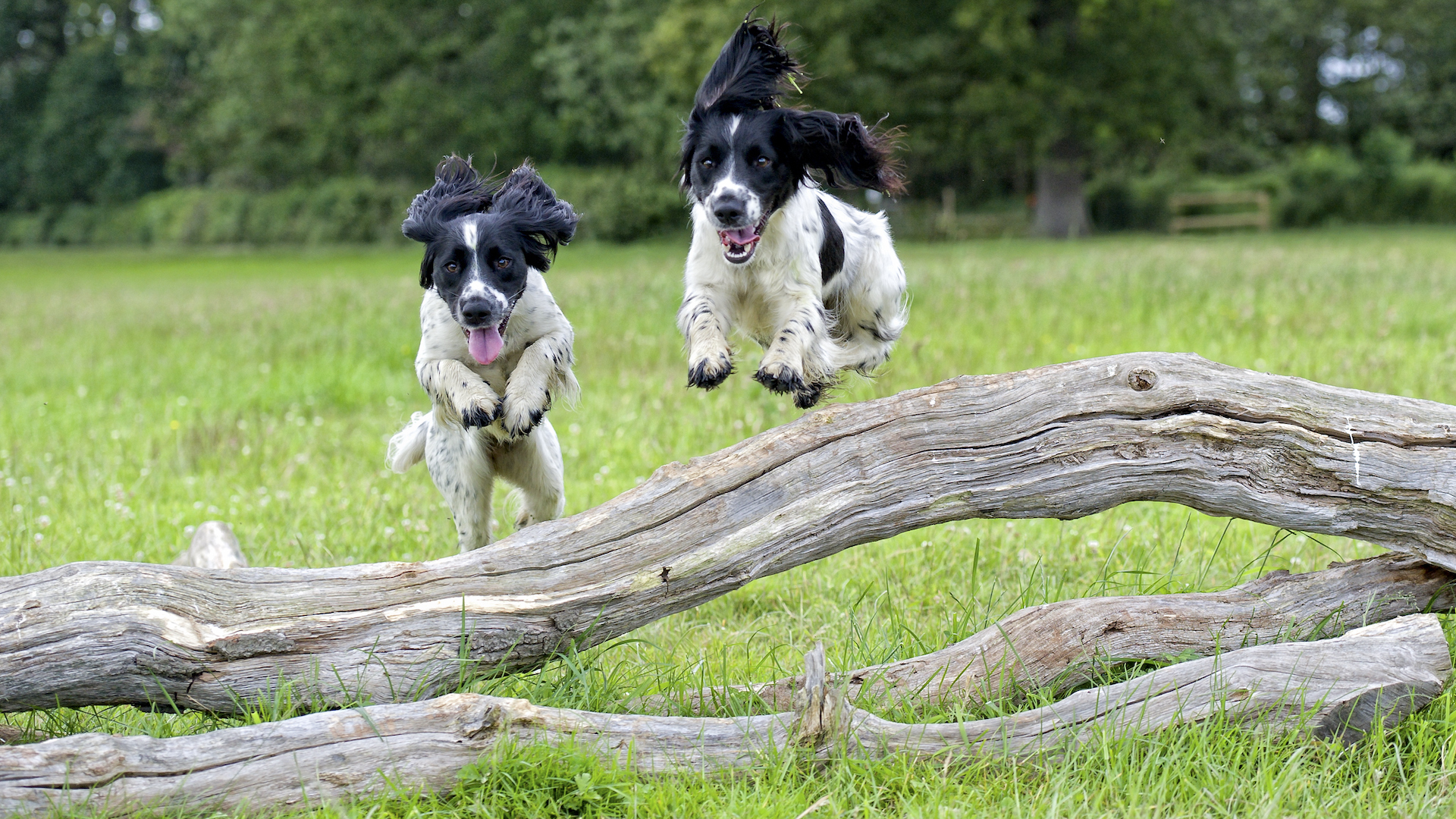
Springer spaniels remain lively and energetic for most of their lives, but they tend to retain a puppy-like hyperactivity for a good two to three years. Springer owners often ask, “When will my dog calm down?” once the dog is physically mature at around a year, but they’ll have at least another year or two of boisterous bounciness.
22. Good lives
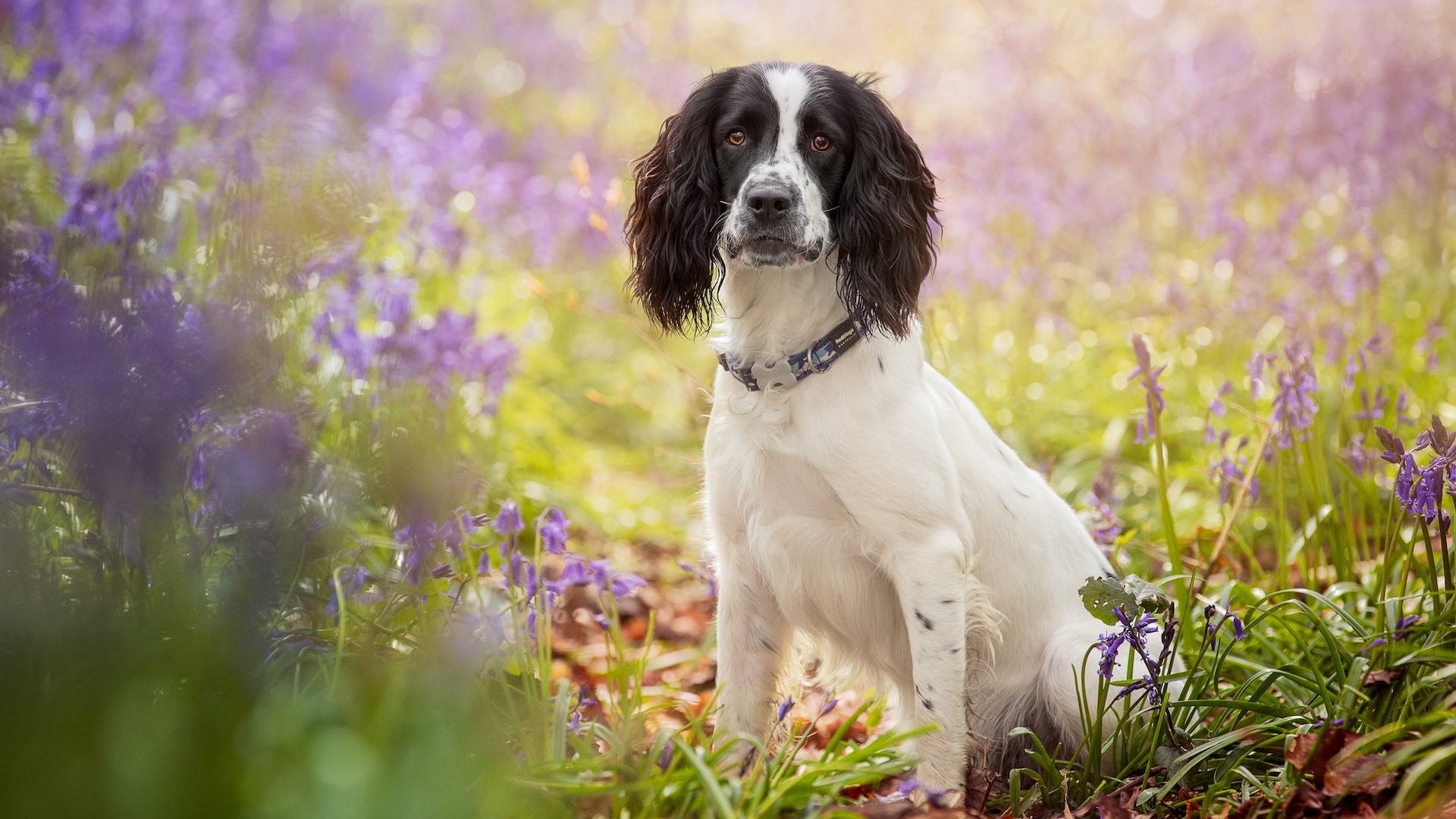
Springer spaniels have a longer than average life expectancy for a dog of 12–14 years, with many living comfortably into their mid teens.
23. A need for speed
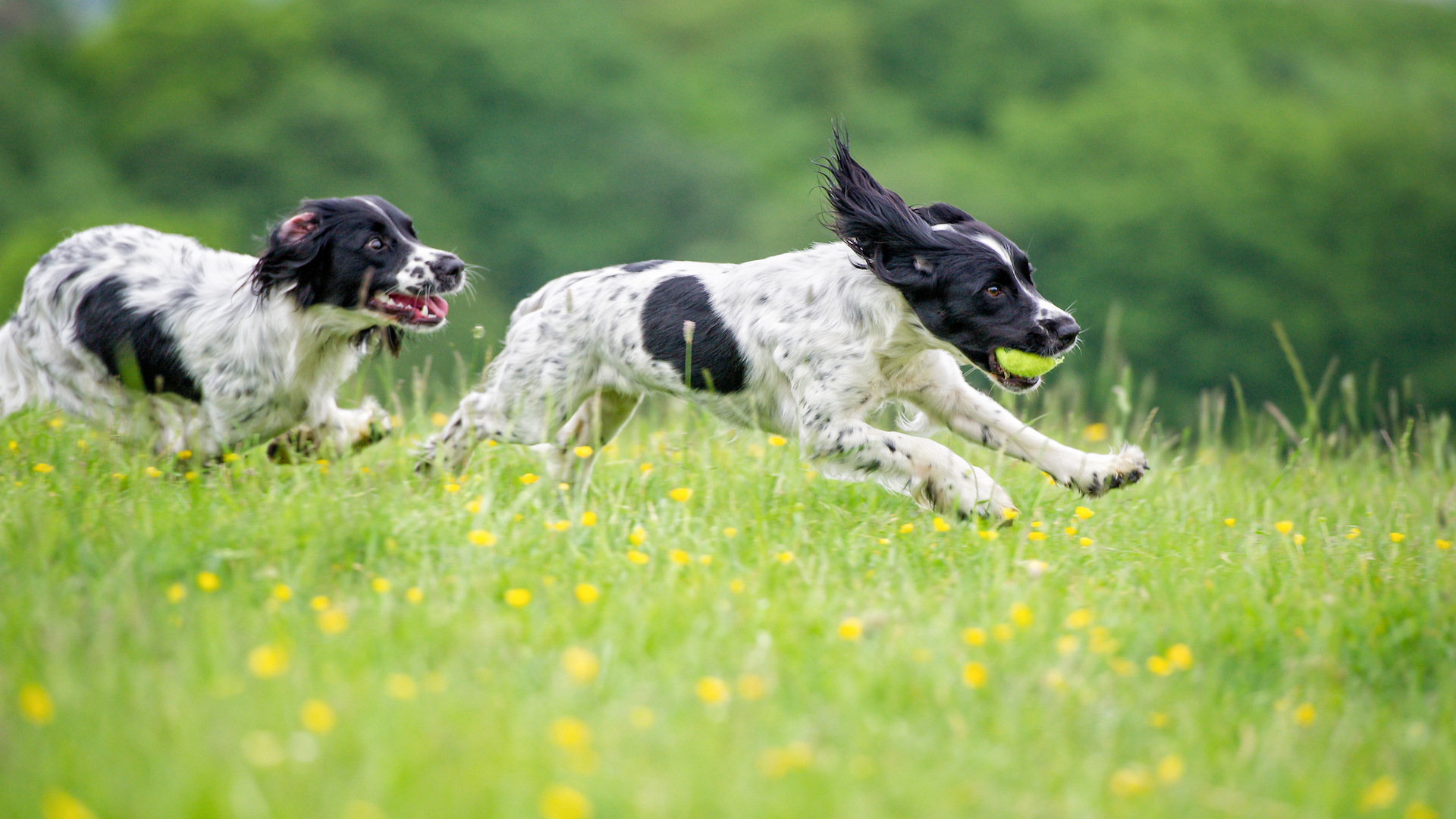
Springer spaniels need exercise and lots of it. They are highly active dogs and will thrive on two decent walks a day for their fitness, health, and mental wellbeing. It doesn’t just need to be walking – they can accompany you on runs, the bike, or head out for a swim. Ideal for those who love being in the great outdoors, dog in tow.
If you're looking for ways to workout with your pet, the options are endless with this breed.
24. High IQ
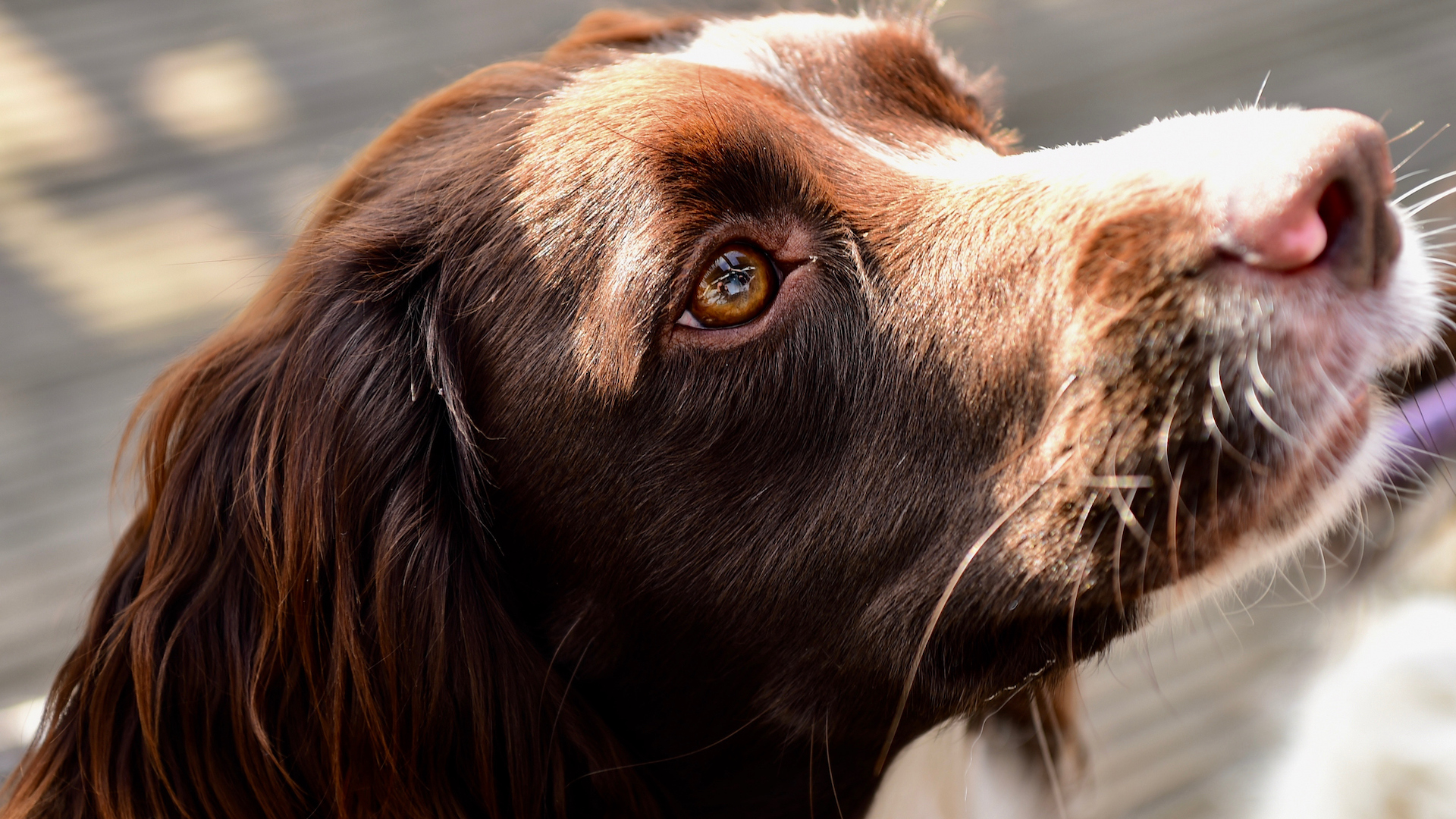
According to Stanley Coren’s Intelligence of Dogs, the springer spaniel is the 13th most intelligent breed. Coren rated dogs according to adaptive, working, and instinctive intelligence, and the English Springer is ranked in a tier of “excellent working dogs, who tend to learn a new command in five to 15 exposures and obey at least 85% of the time”.
25. Presidential favor
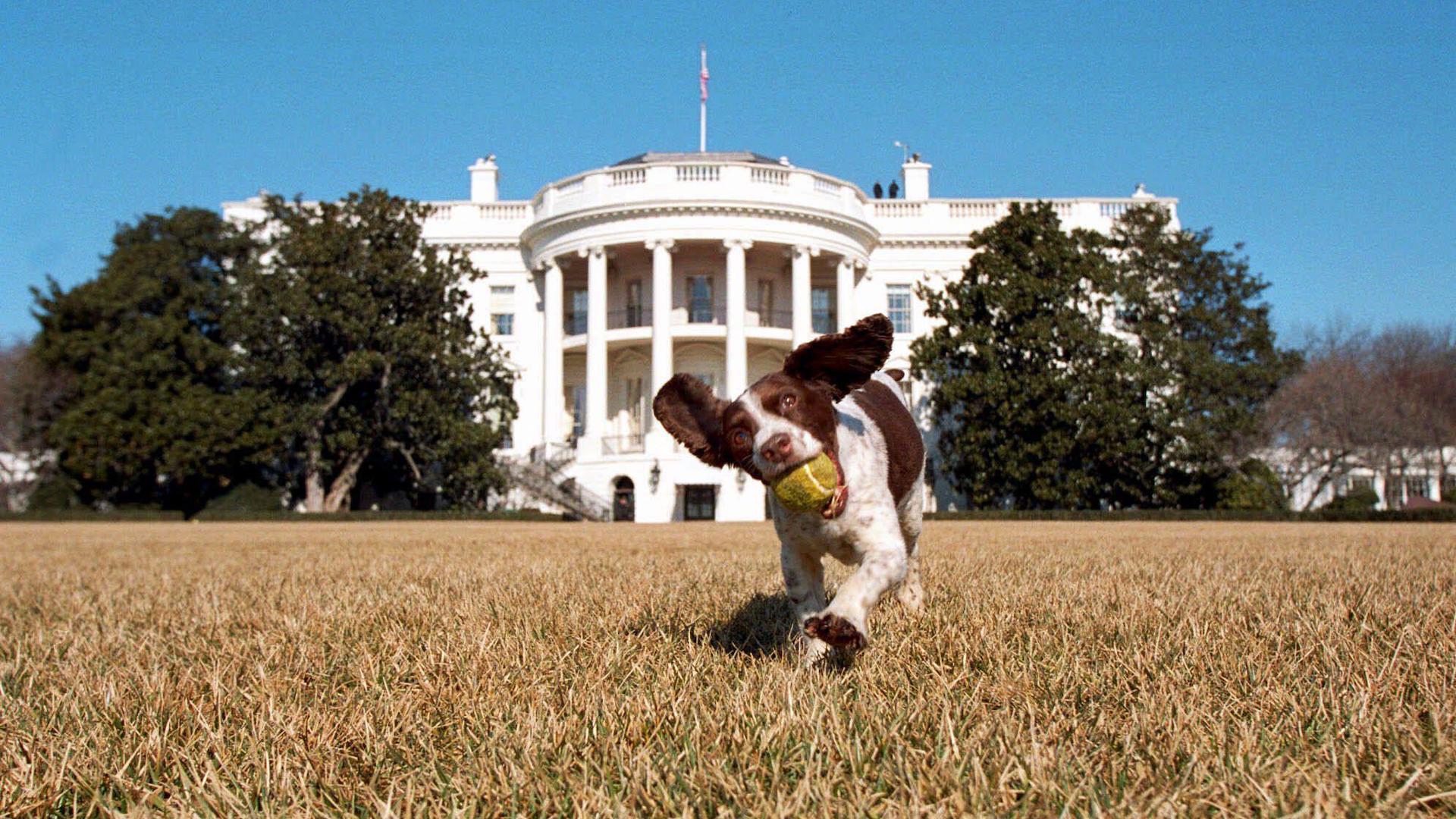
Many famous people have chosen springer spaniels as their beloved pets, including President George HW Bush, his son President George W. Bush, Prince Harry, Princess Grace of Monaco, and Oprah Winfrey.
26. Not so English

They may now be called English dogs, but it is likely that spaniels originated hundreds of years ago in Spain, coming to England via France, hence “espagnol” – the French word for Spanish.
27. Prey drive
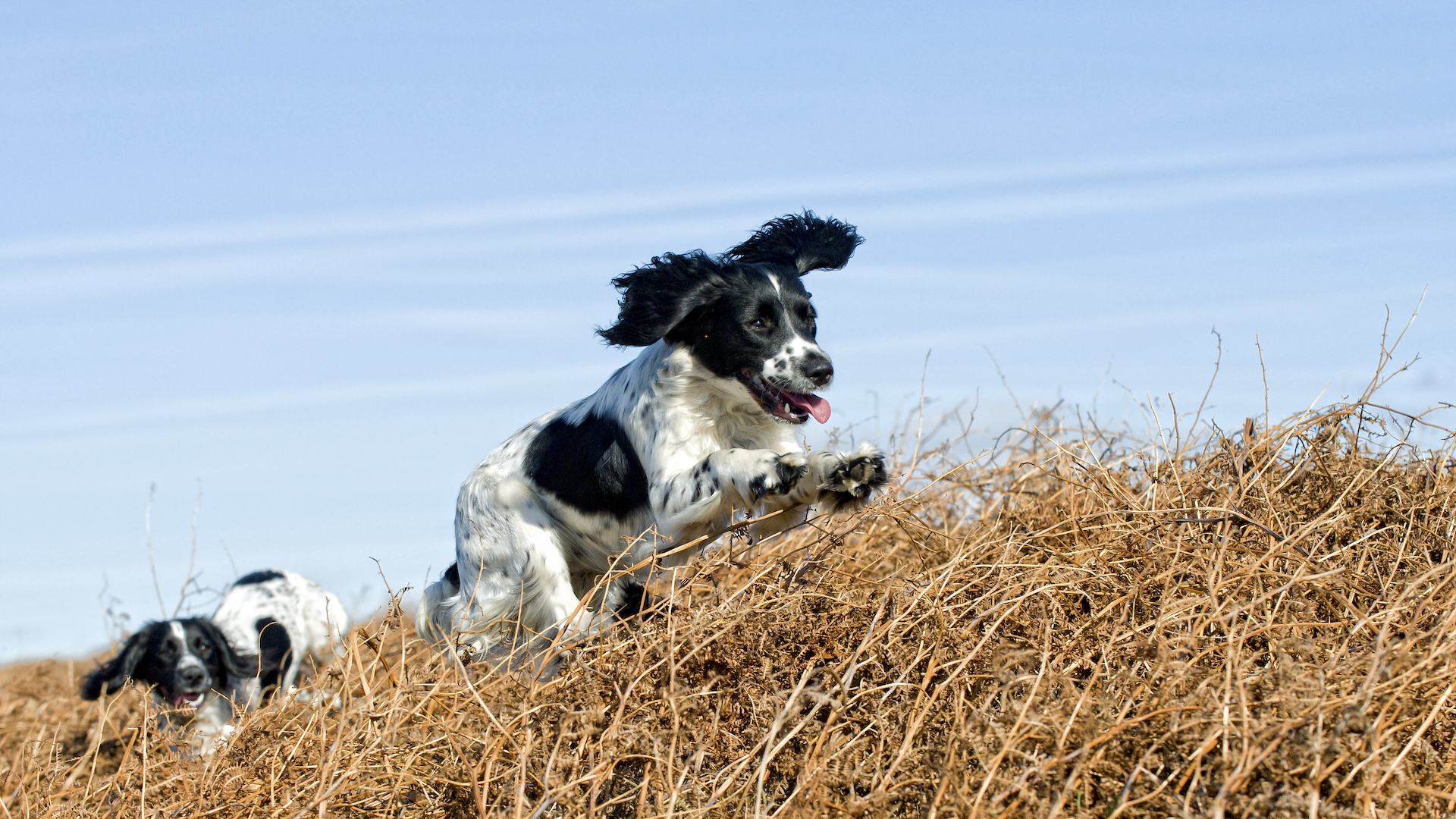
Springers are highly trainable, but not all are highly trained. They naturally have a very high prey drive, and if their recall command is not secure, you may be whistling vainly into the undergrowth for hours while an excitable and slightly scatty spaniel gets on with the job he believes he was born to do.
28. All-rounders
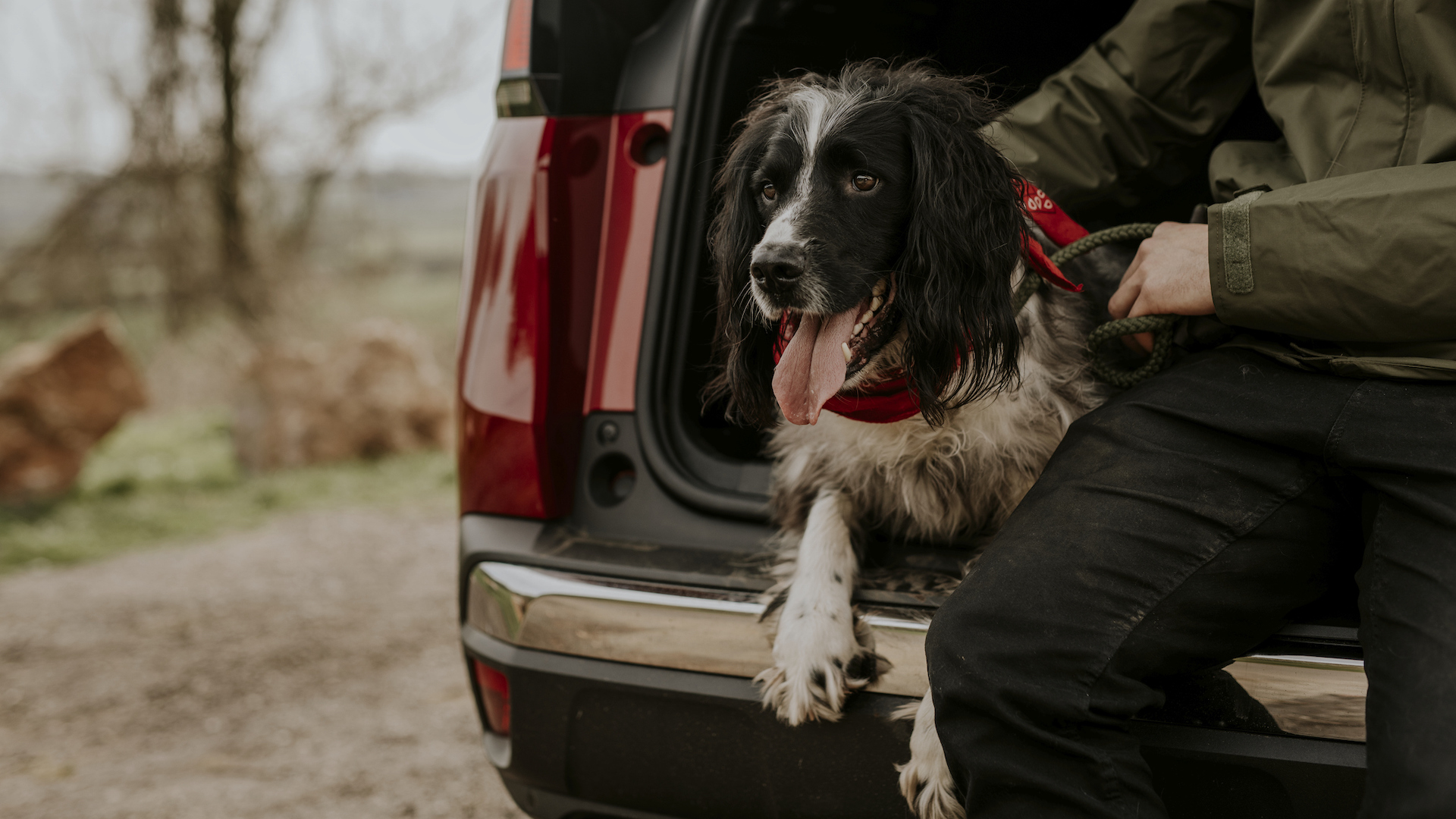
Springer spaniels are considered the most versatile of gundog breeds, with their compact medium size (45lbs max) making them easy to take in the car when visiting friends. While their speed, enthusiasm, and athleticism make them a joyful companion on any adventure. As gundogs per se, they can turn their paw to anything, whether it’s walked-up shooting, beating, or wildfowling.
29. Regular grooming required
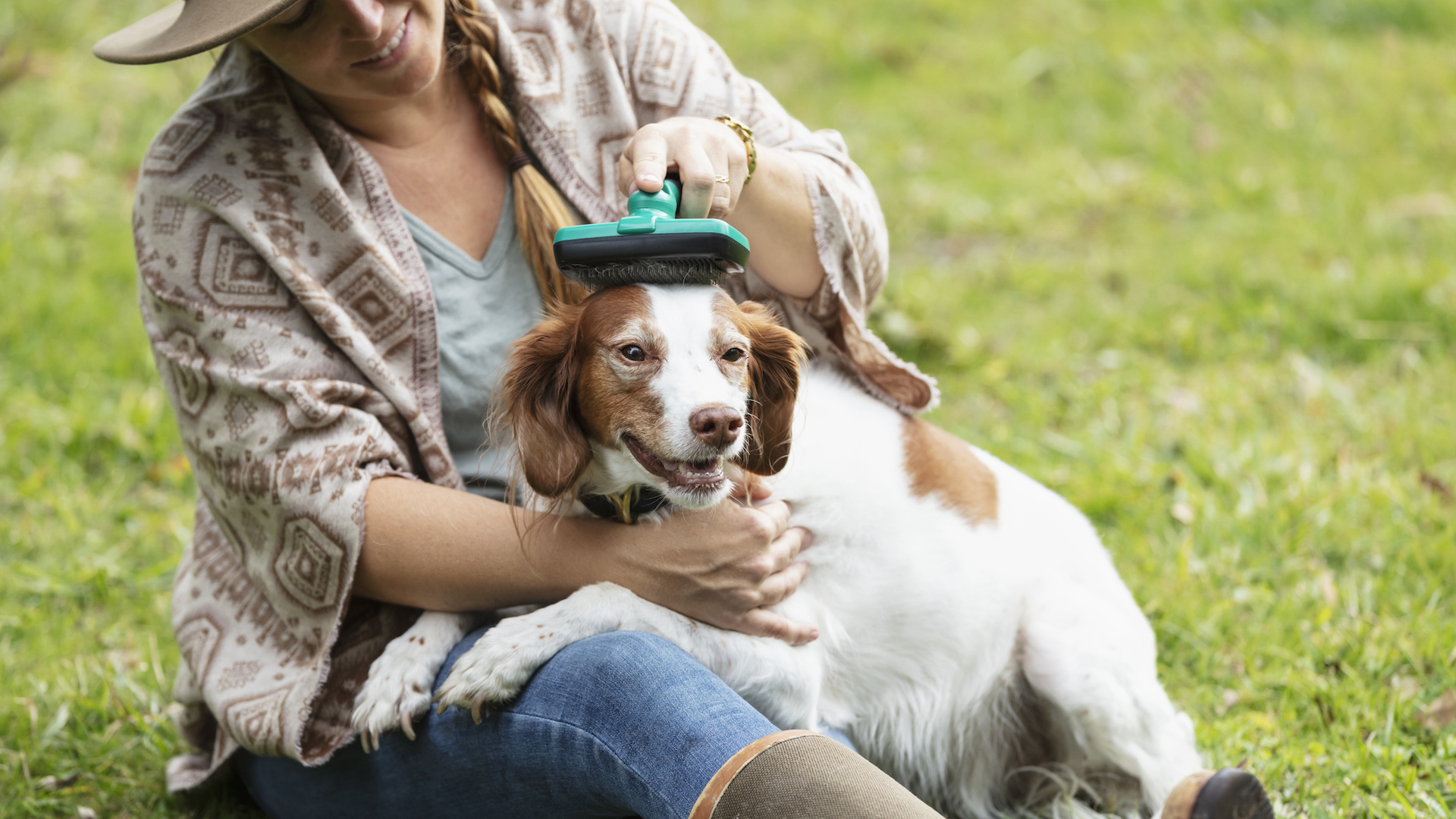
Spaniels have a double coat that sheds. Although they are only moderate shedders, their propensity to head into every bramble bush and thicket they find means that they are likely to end the day with plenty of mats and tangles in their coats. Their long ears, in particular, need daily attention. It’s worth learning how to groom a dog, to keep their coats looking their best.
30. Beware of boredom
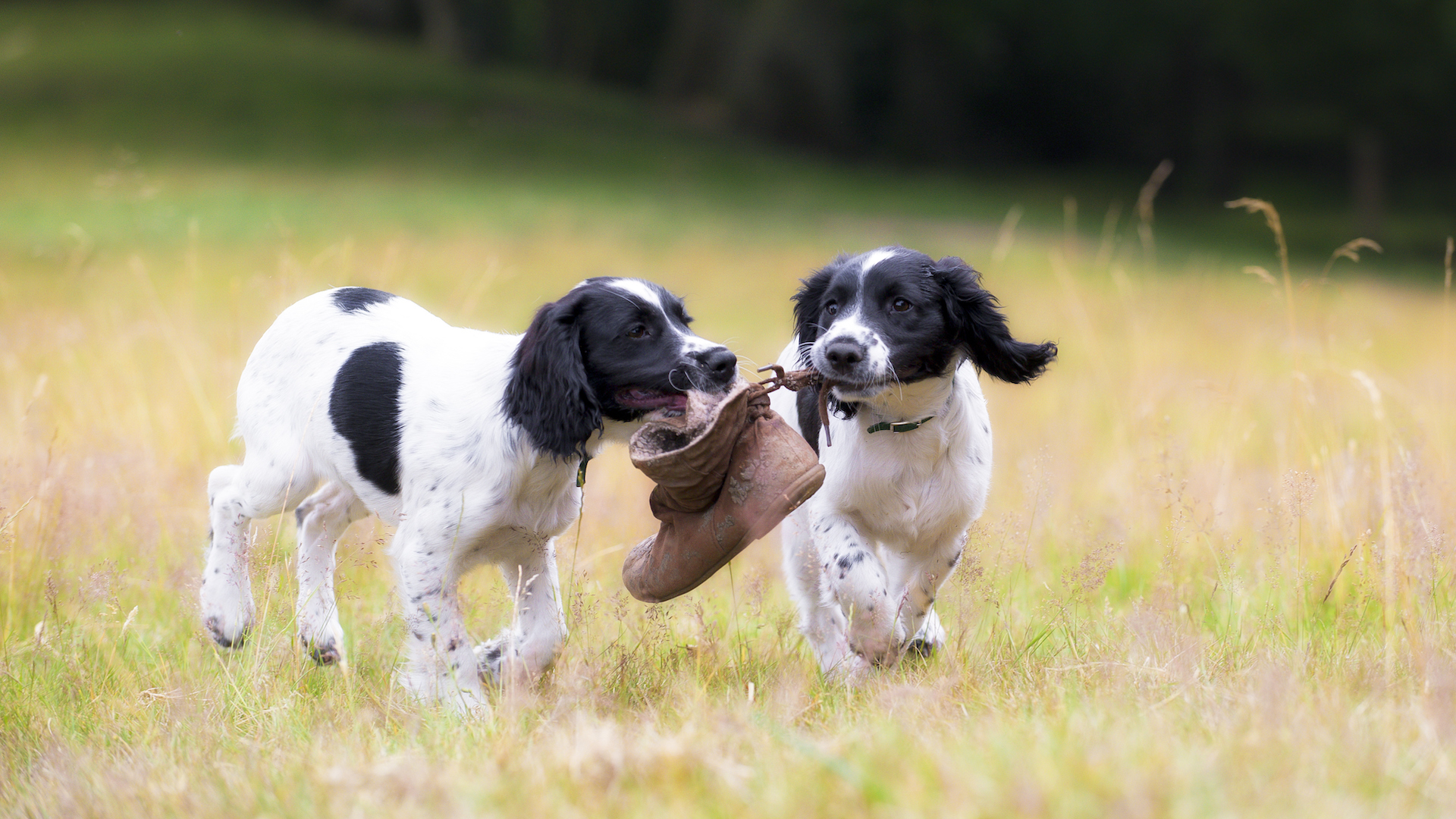
As befits an intelligent and energetic dog, the English Springer needs plenty of mental stimulation as they get bored easily and may resort to finding their own entertainment – which is unlikely to align with your values! A busy springer is a happy dog, so keep him engaged with short and varied training sessions, agility, scent work, puzzles, and toys.
31. Soft mouths
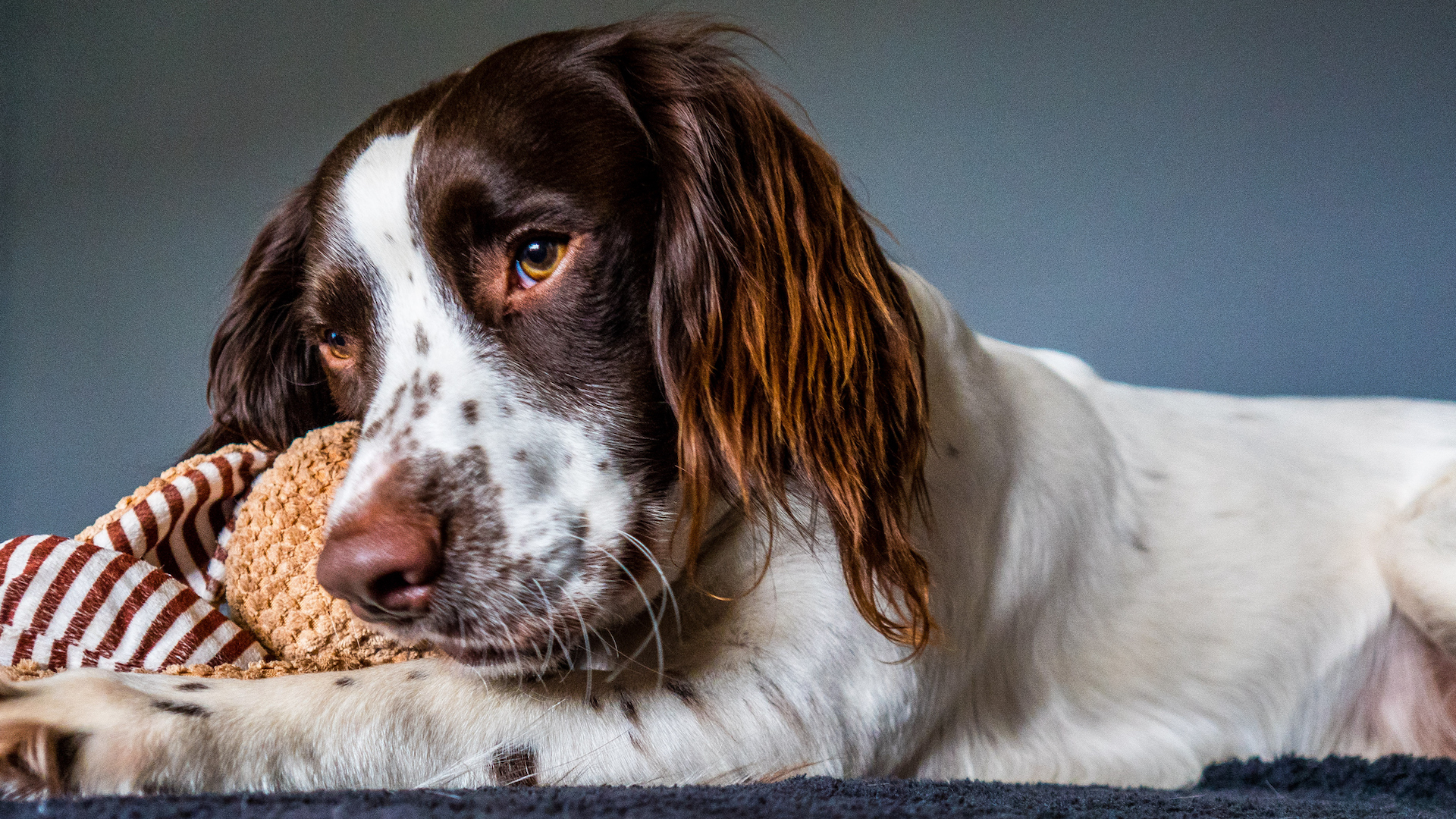
A springer spaniel should traditionally always deliver the game it has retrieved with a soft mouth, so that he does not ruin the intended meal with his teeth. This follows through to pet springers – if they bring you a teddy bear or other toy, it’s usually in the softest grasp between their teeth to keep it safe. However, if you want to play tug of war, that’s a different game entirely...
32. Canine competitors
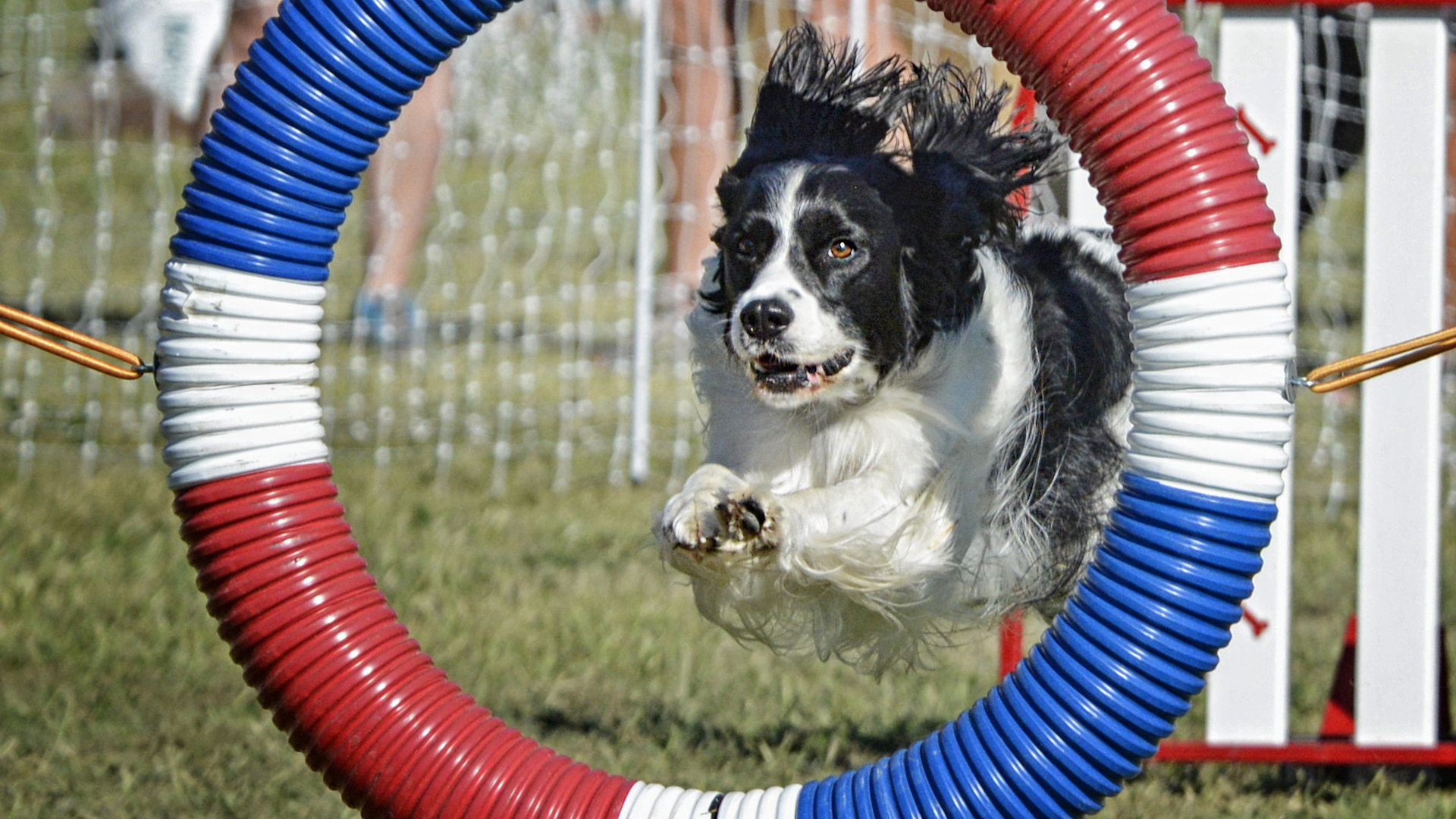
Thanks to their versatility, athleticism and trainability, the springer spaniel excels in most canine sports. They will thrive in all sorts of competitive arenas, from agility to scentwork, from canicross to field dog trials.
Martha is an experienced journalist working in both print and digital media. She specializes in the canine, equine and rural sphere where she has covered a wide range of topics from cloning animals and the ingredients for a perfect yard dog, to helping owners find the best canine GPS trackers on the market. When she’s not busy writing about dogs and horses, she’ll be found either aboard a horse or looking after the menagerie of pets in her care.
